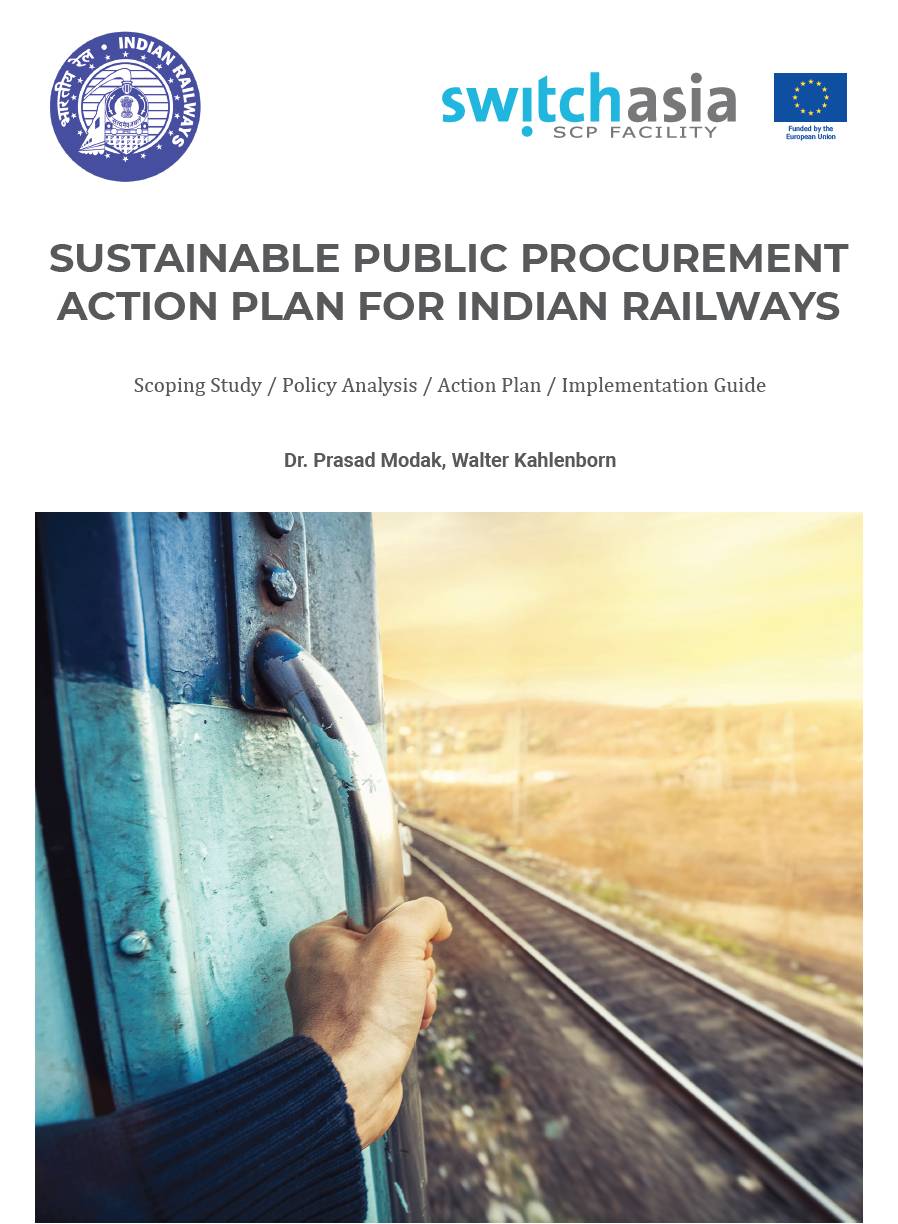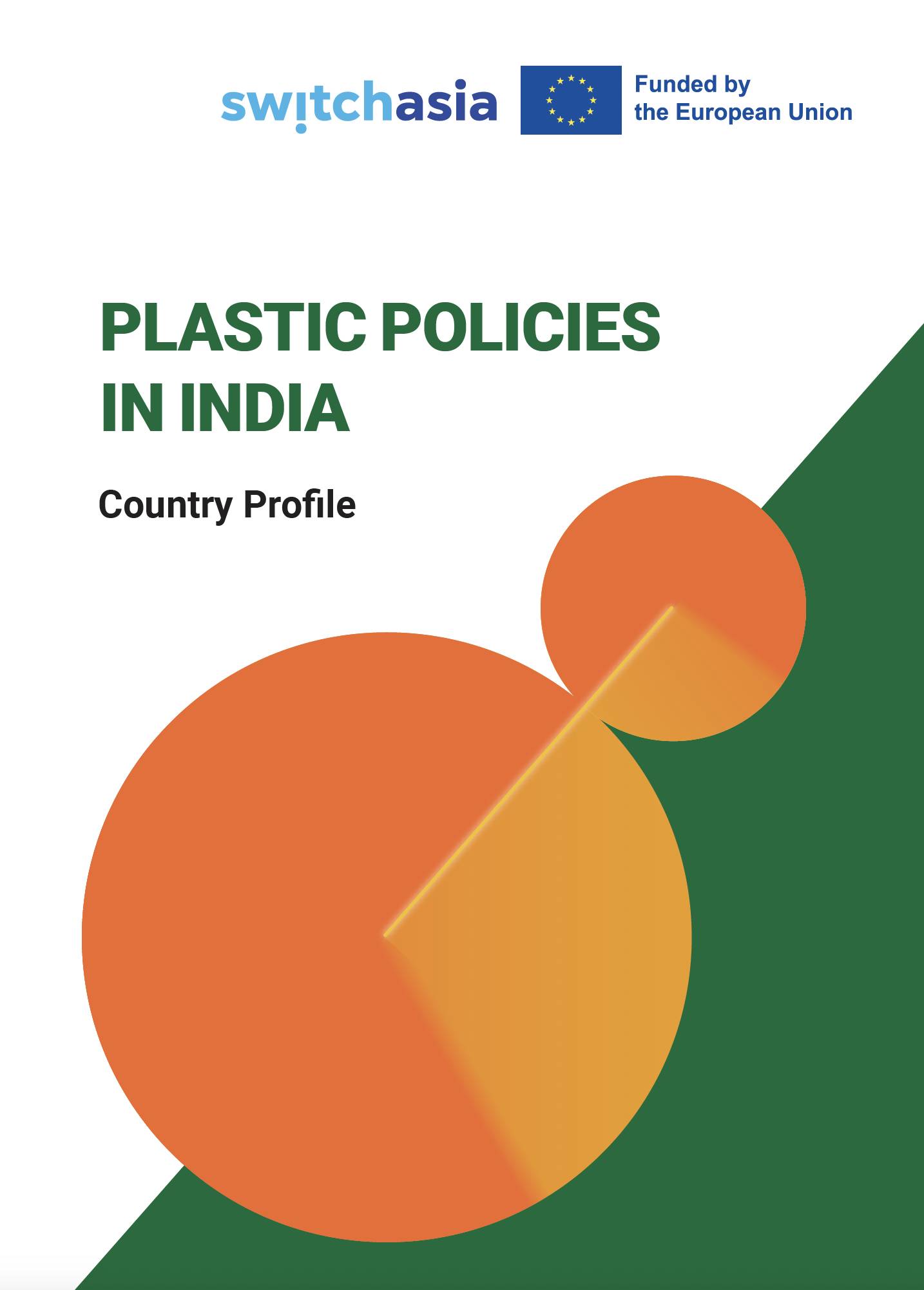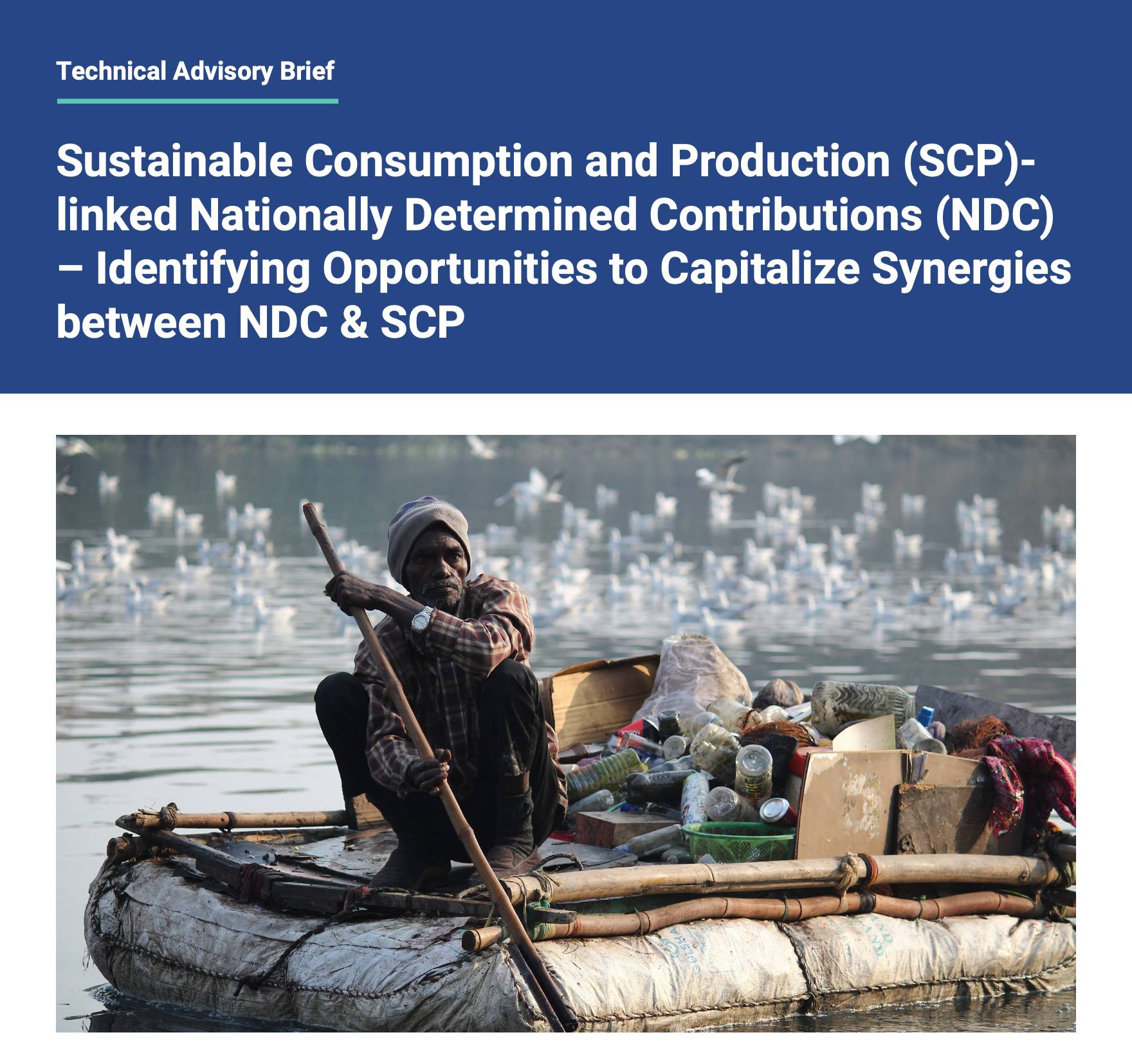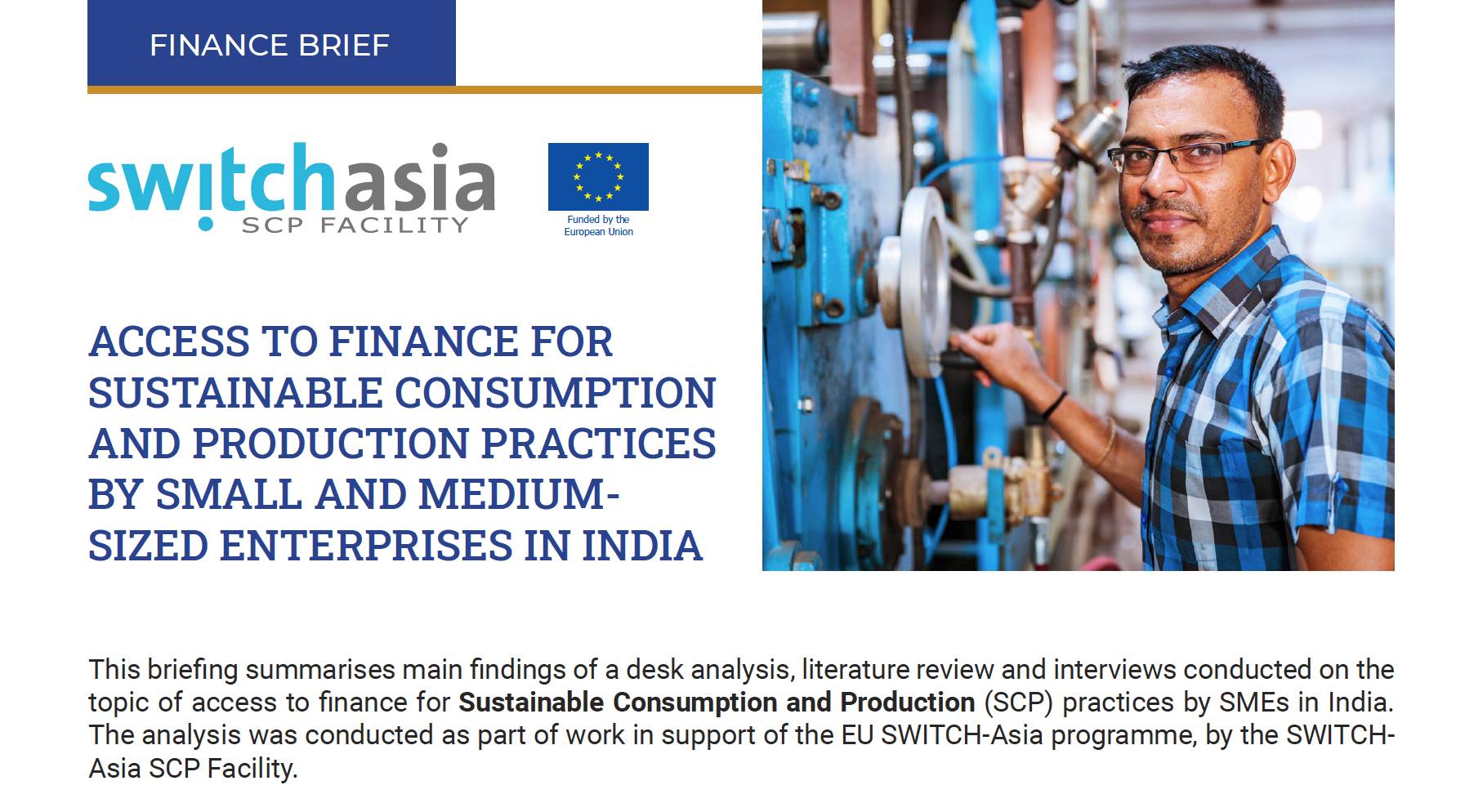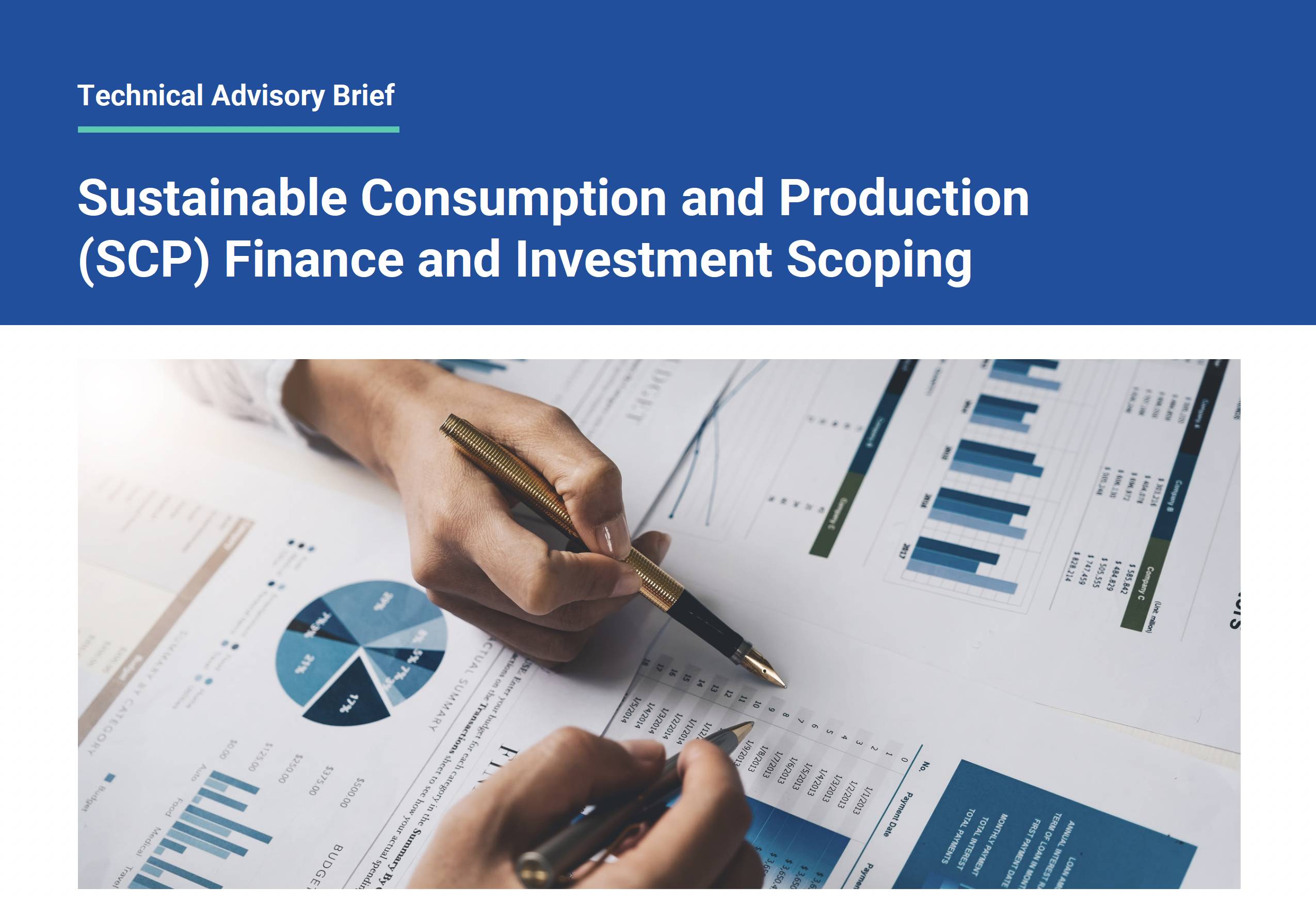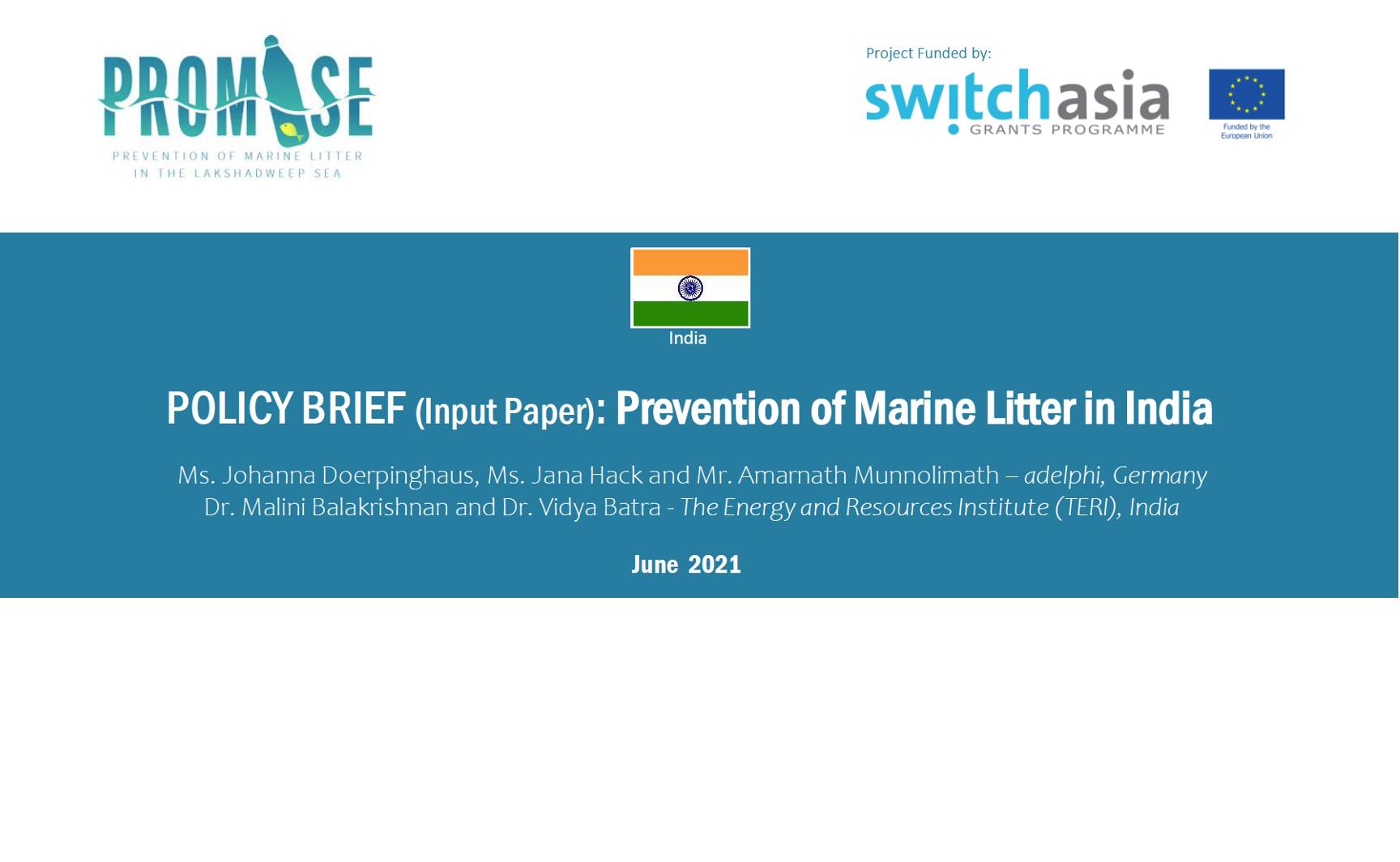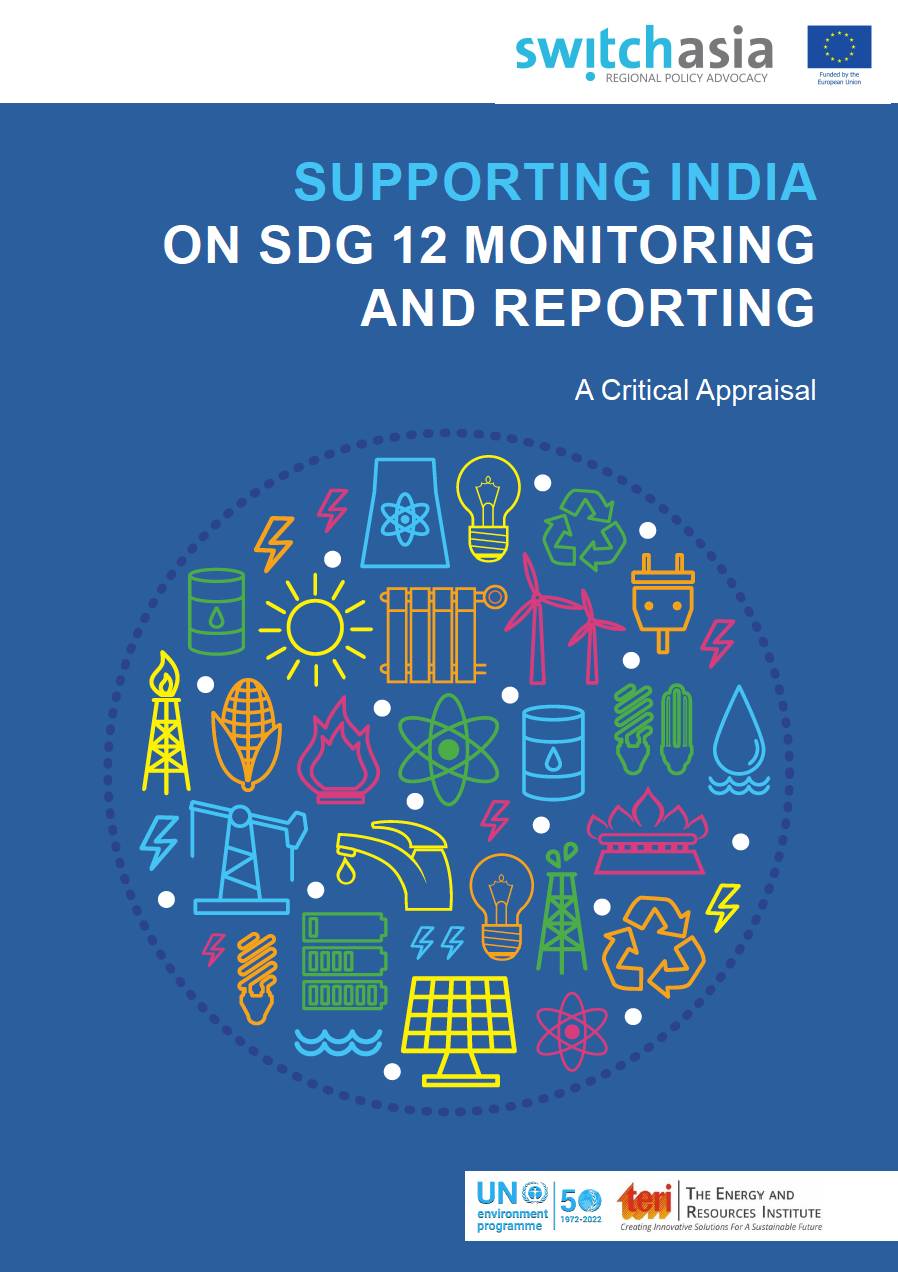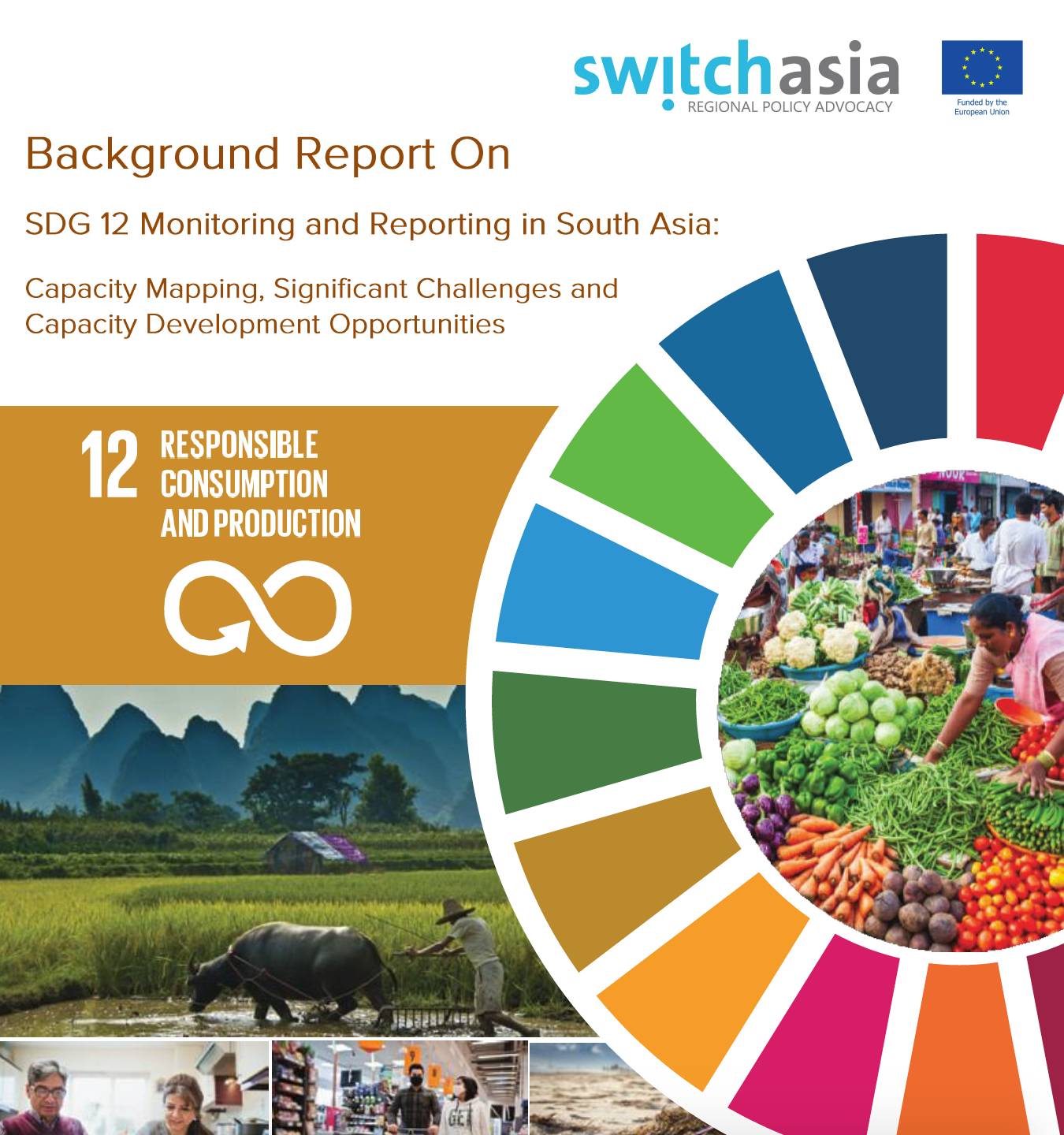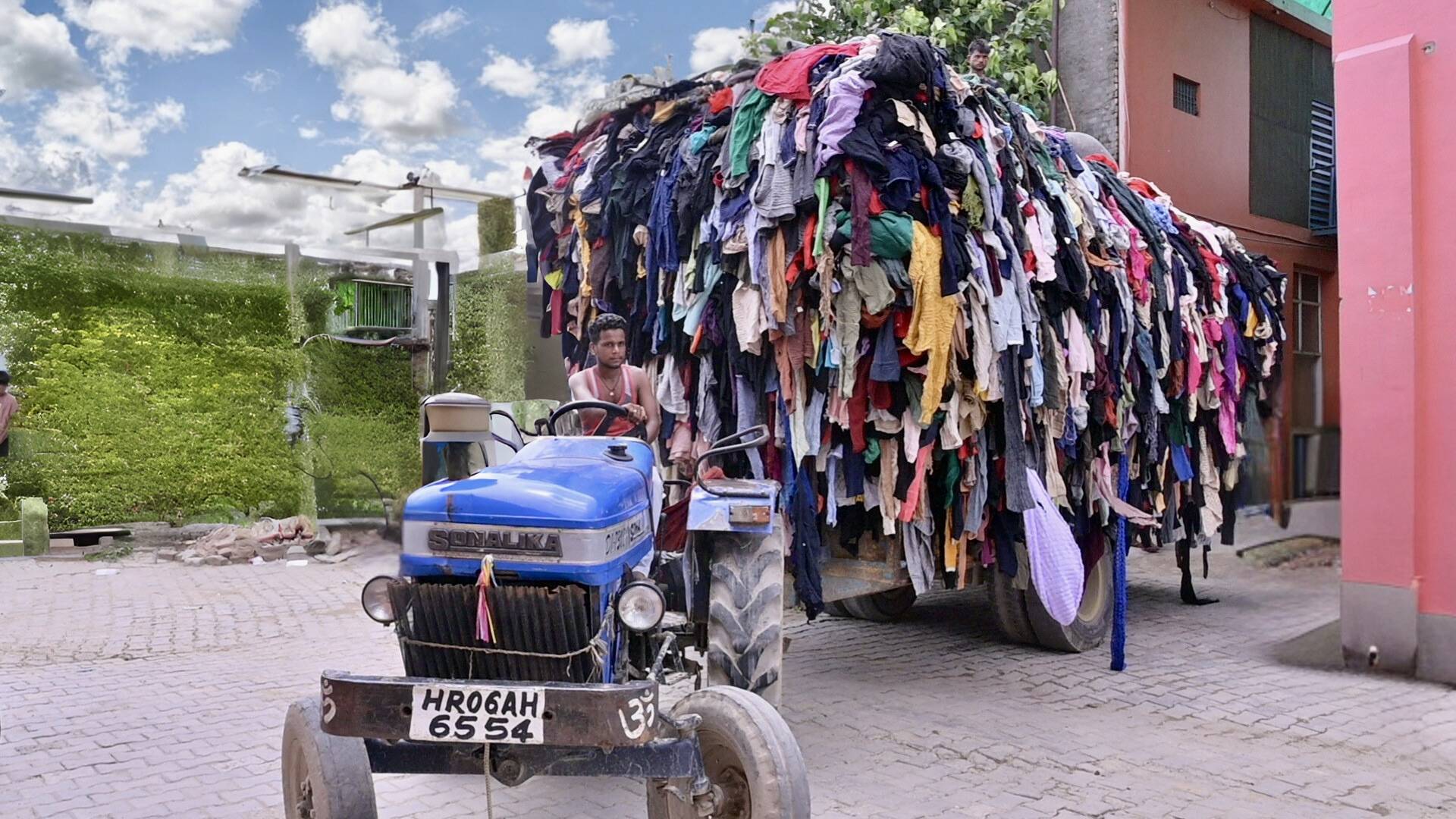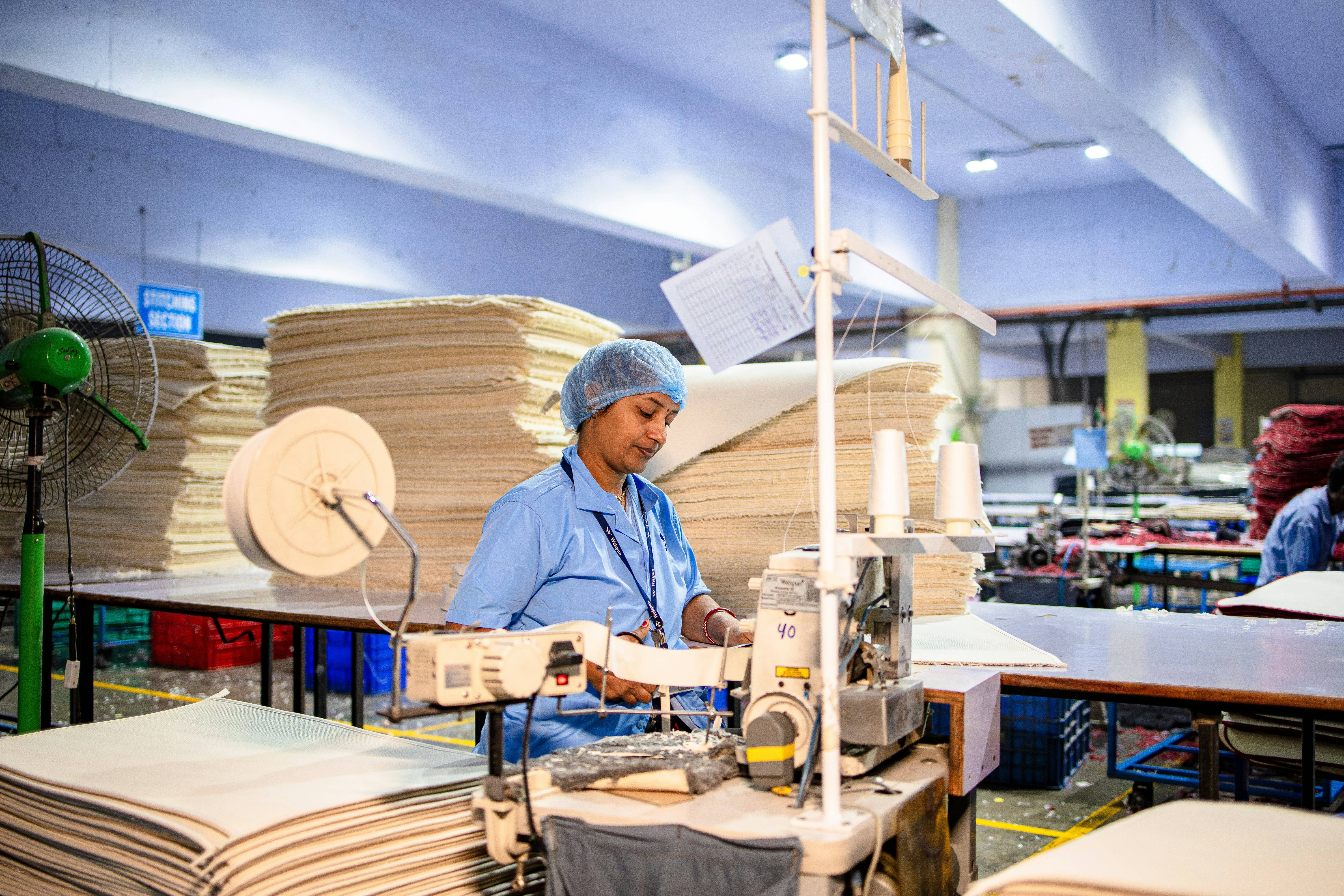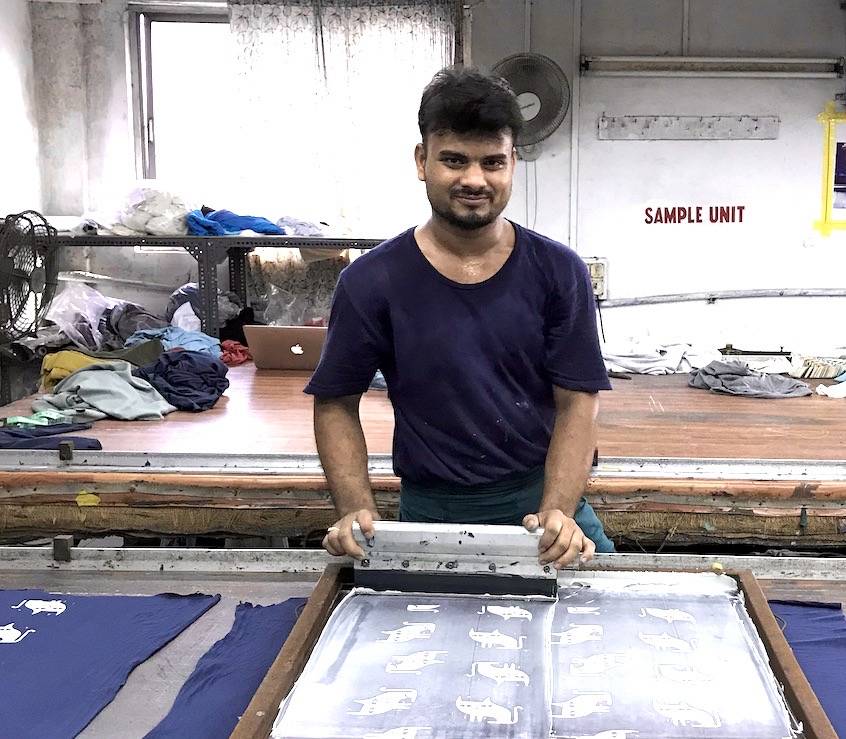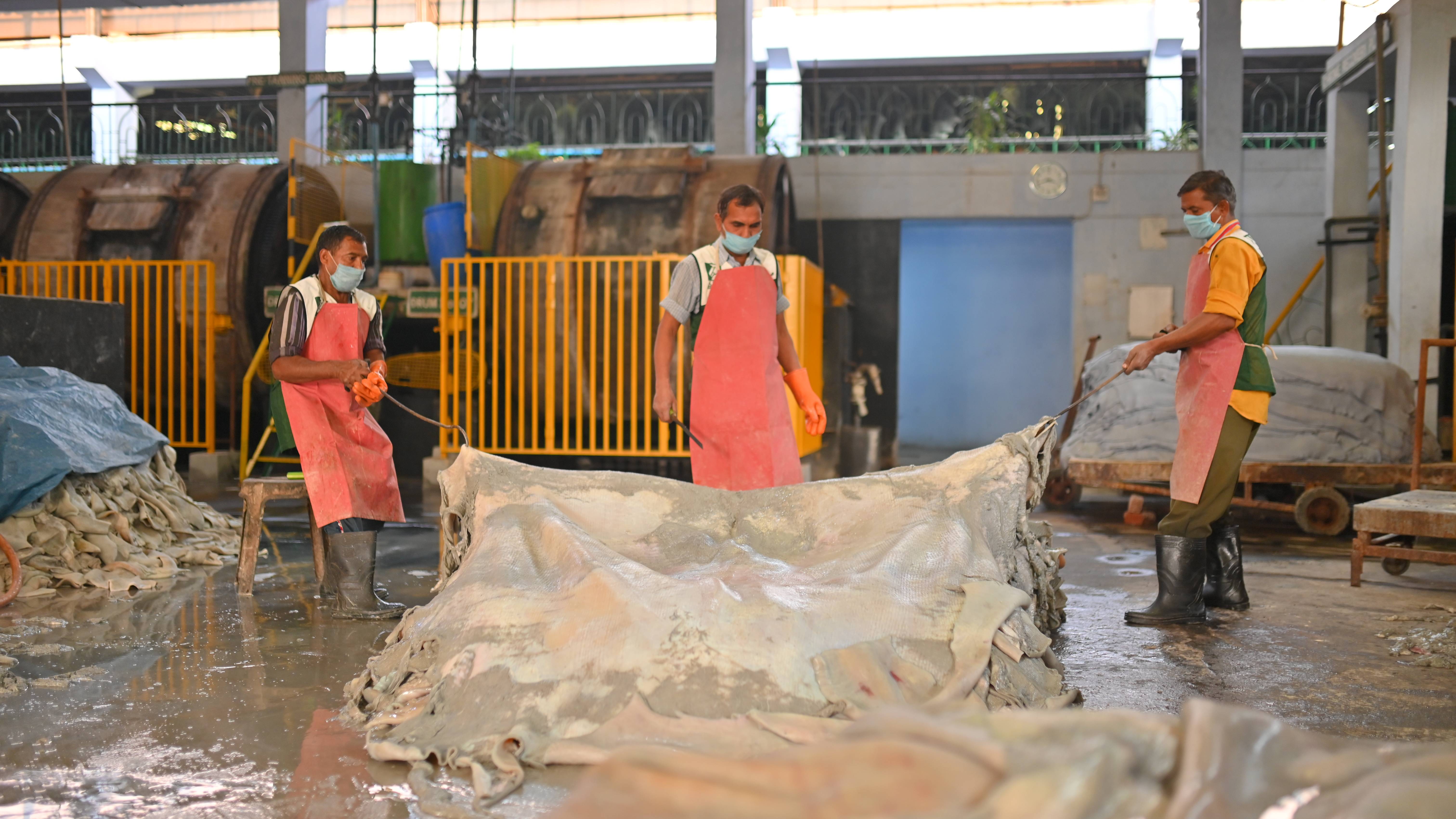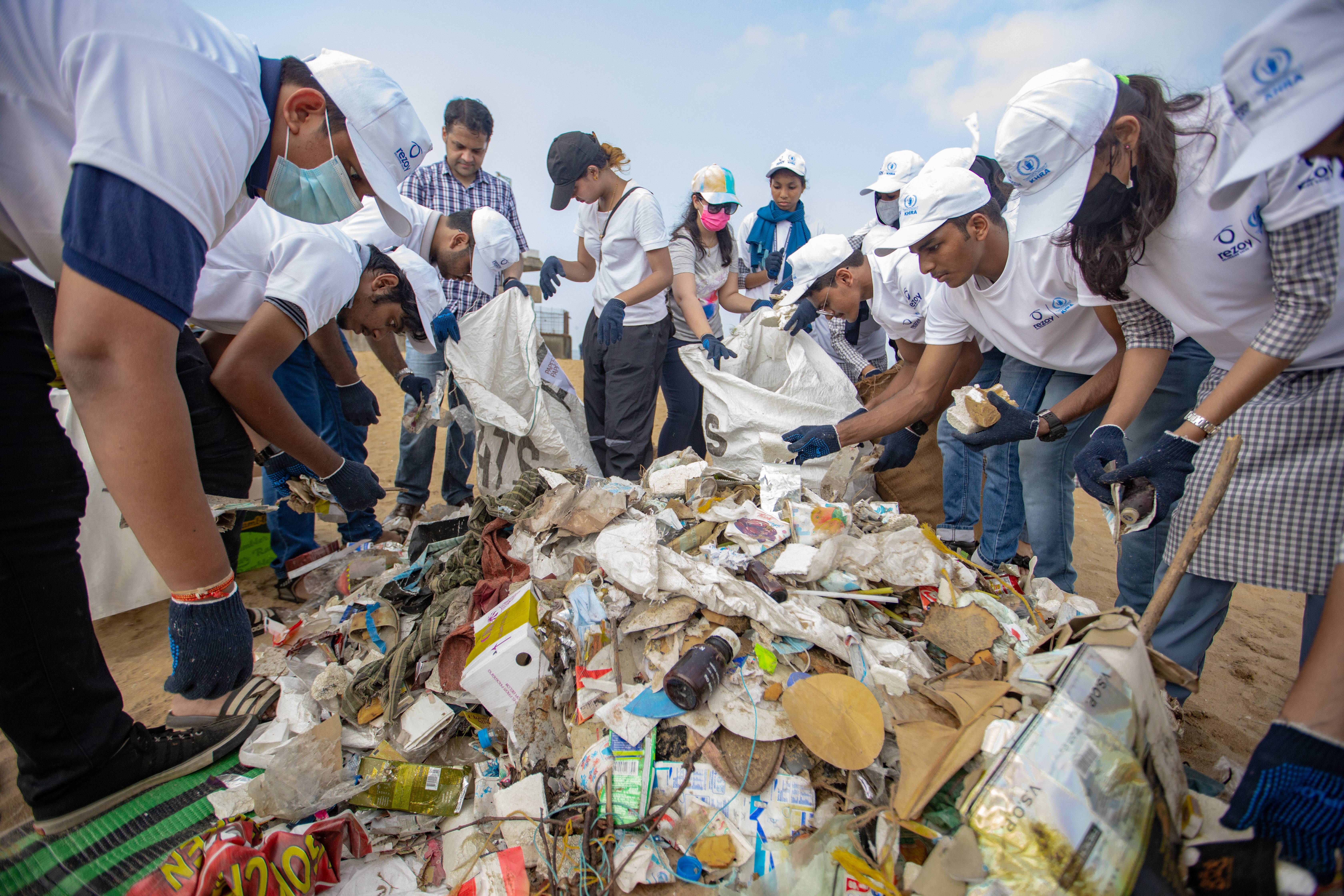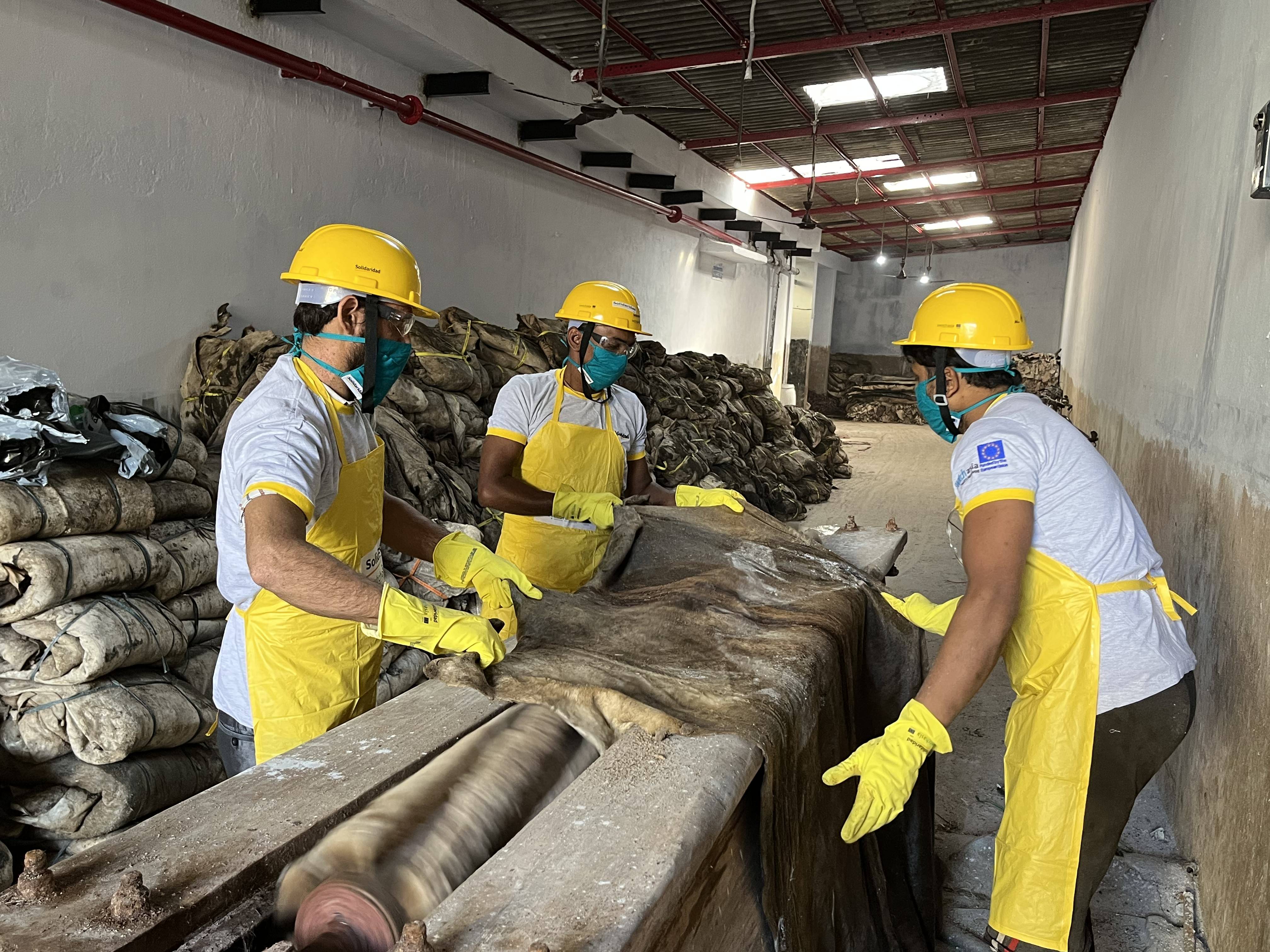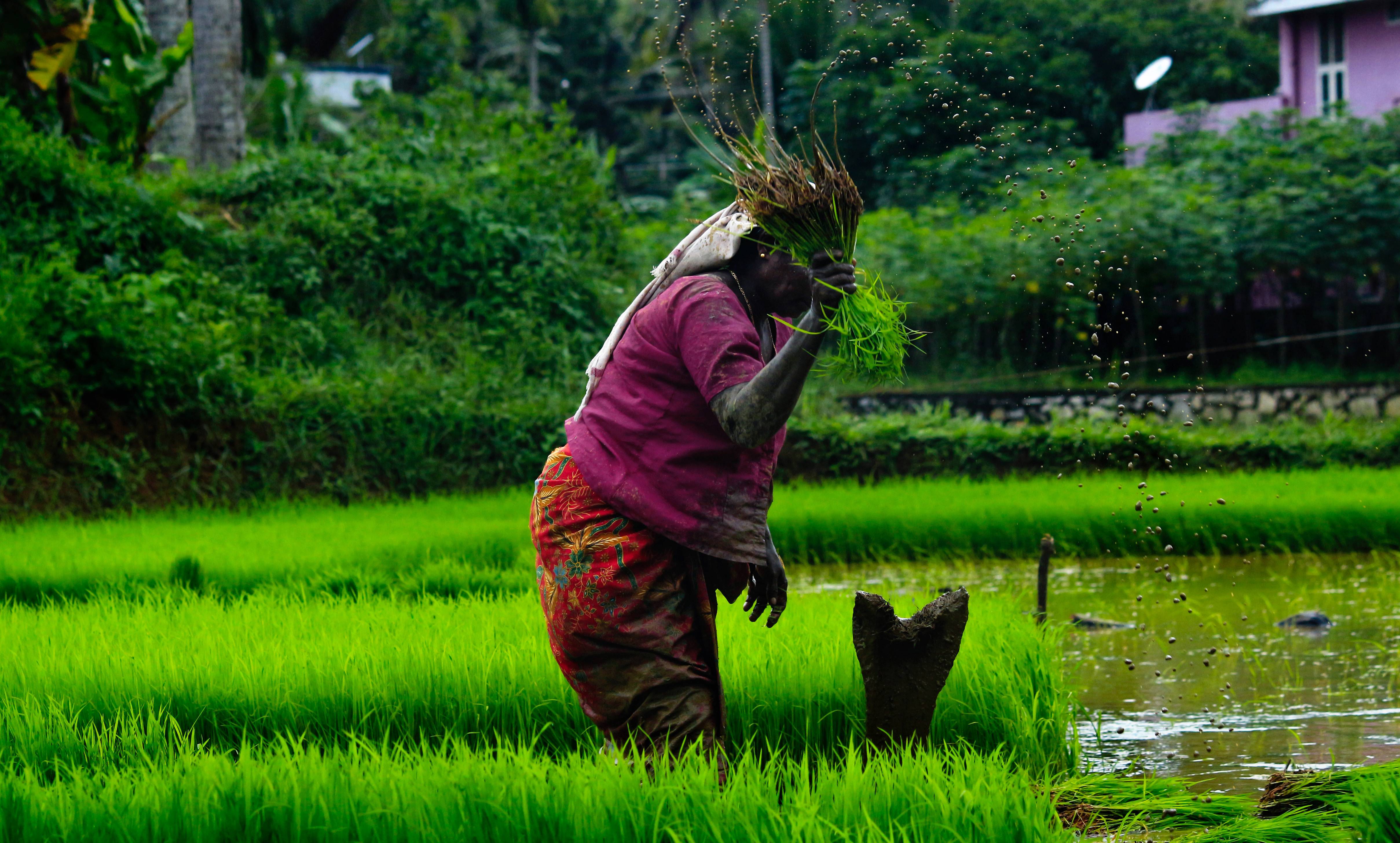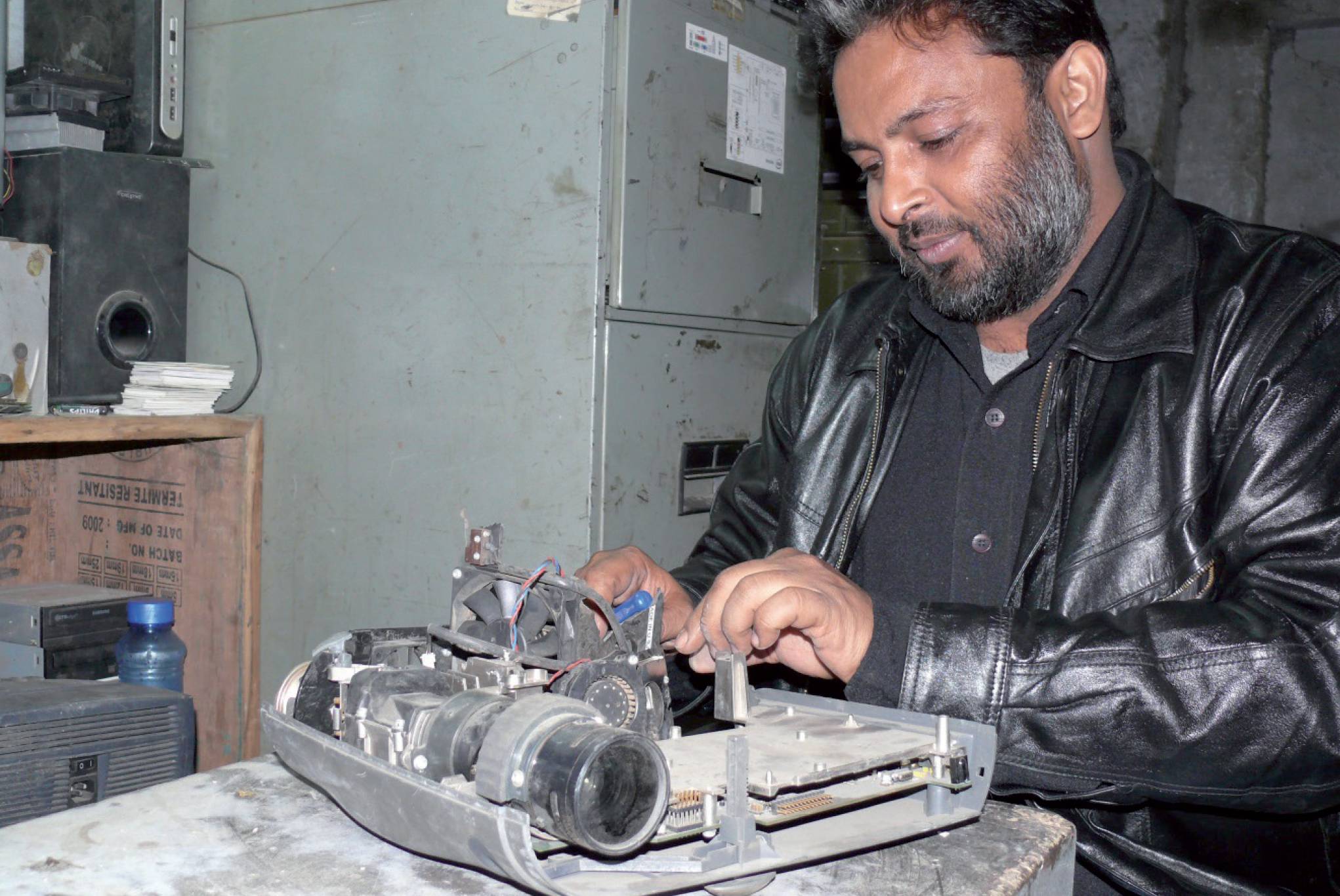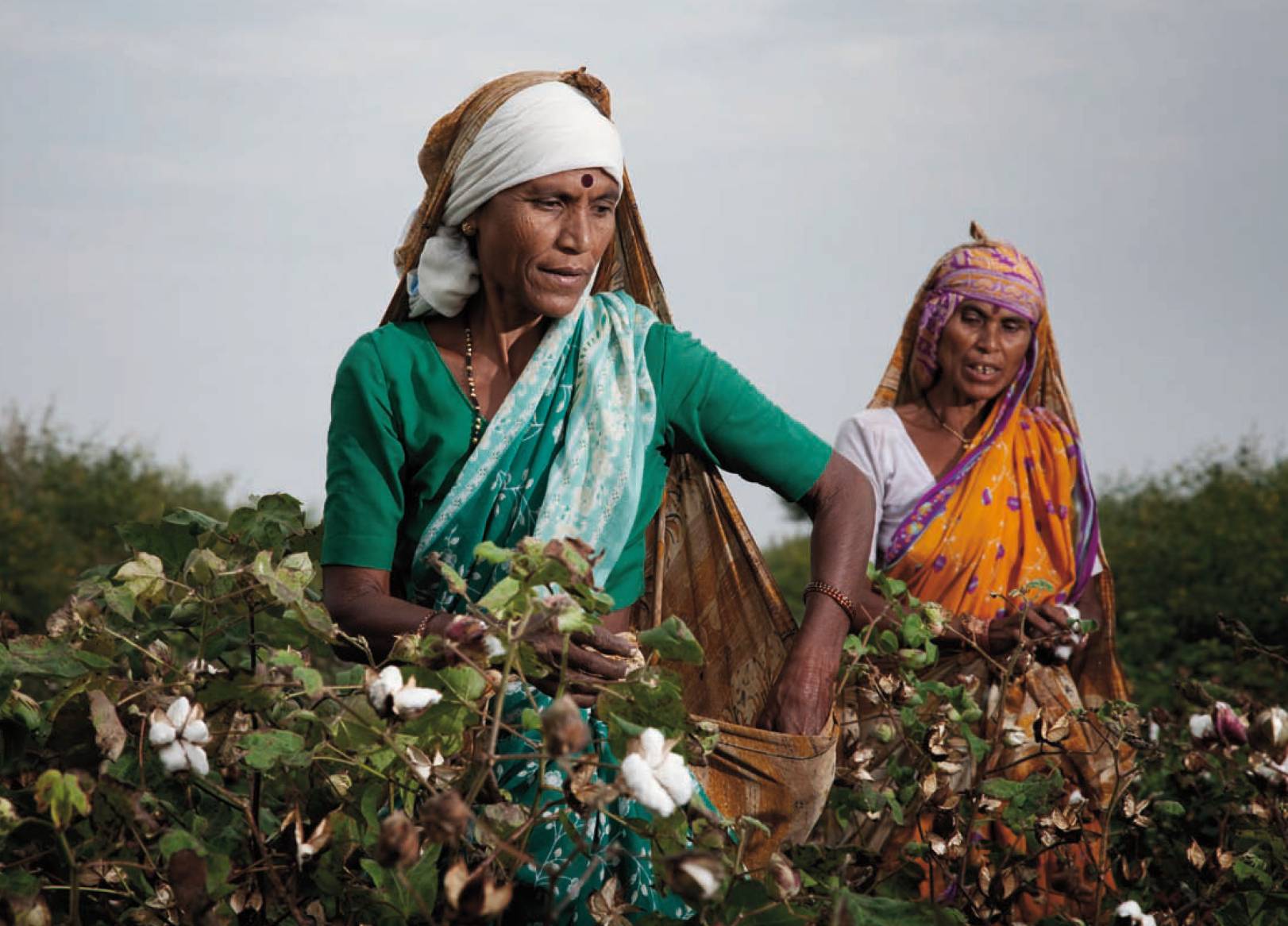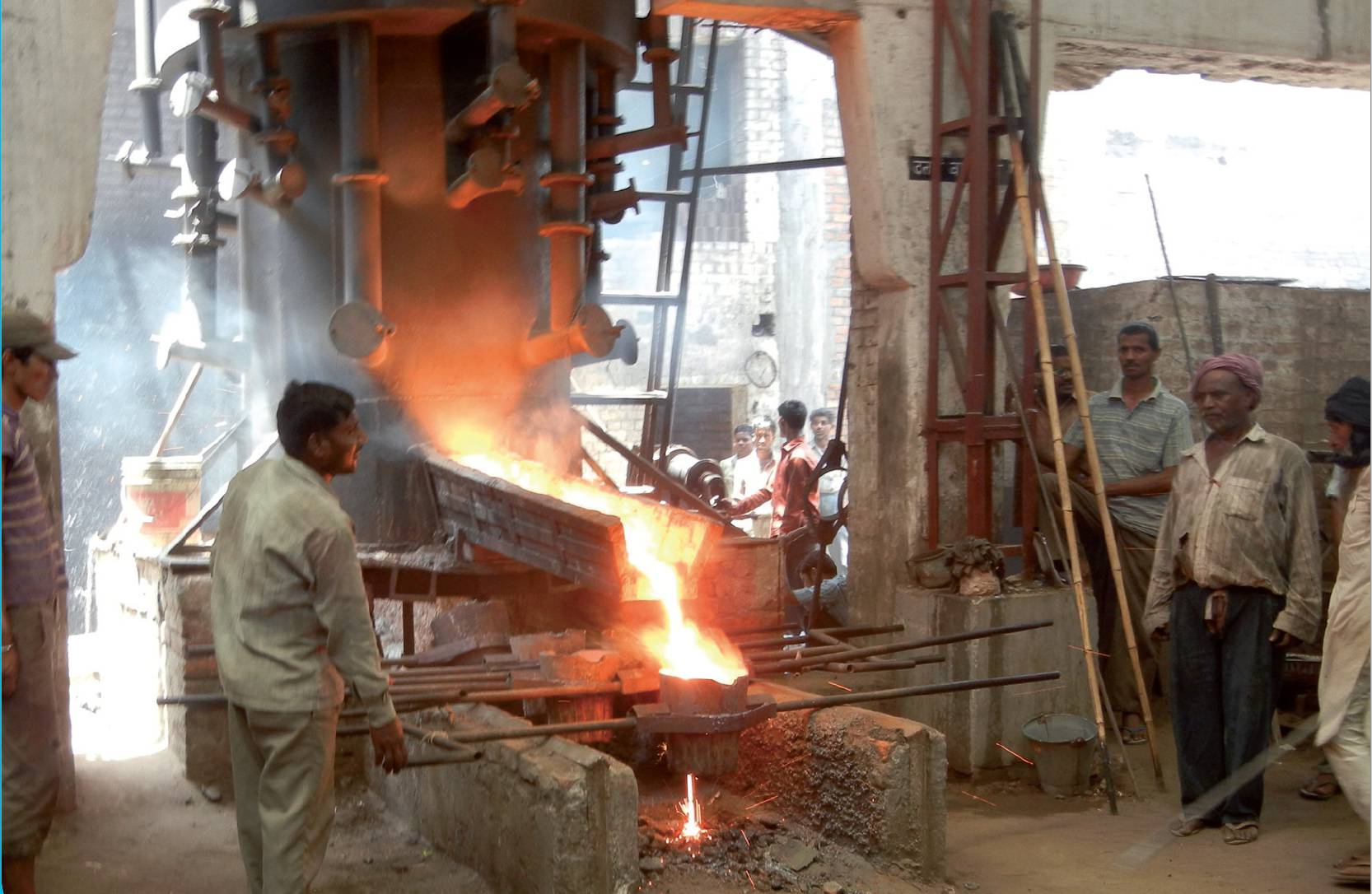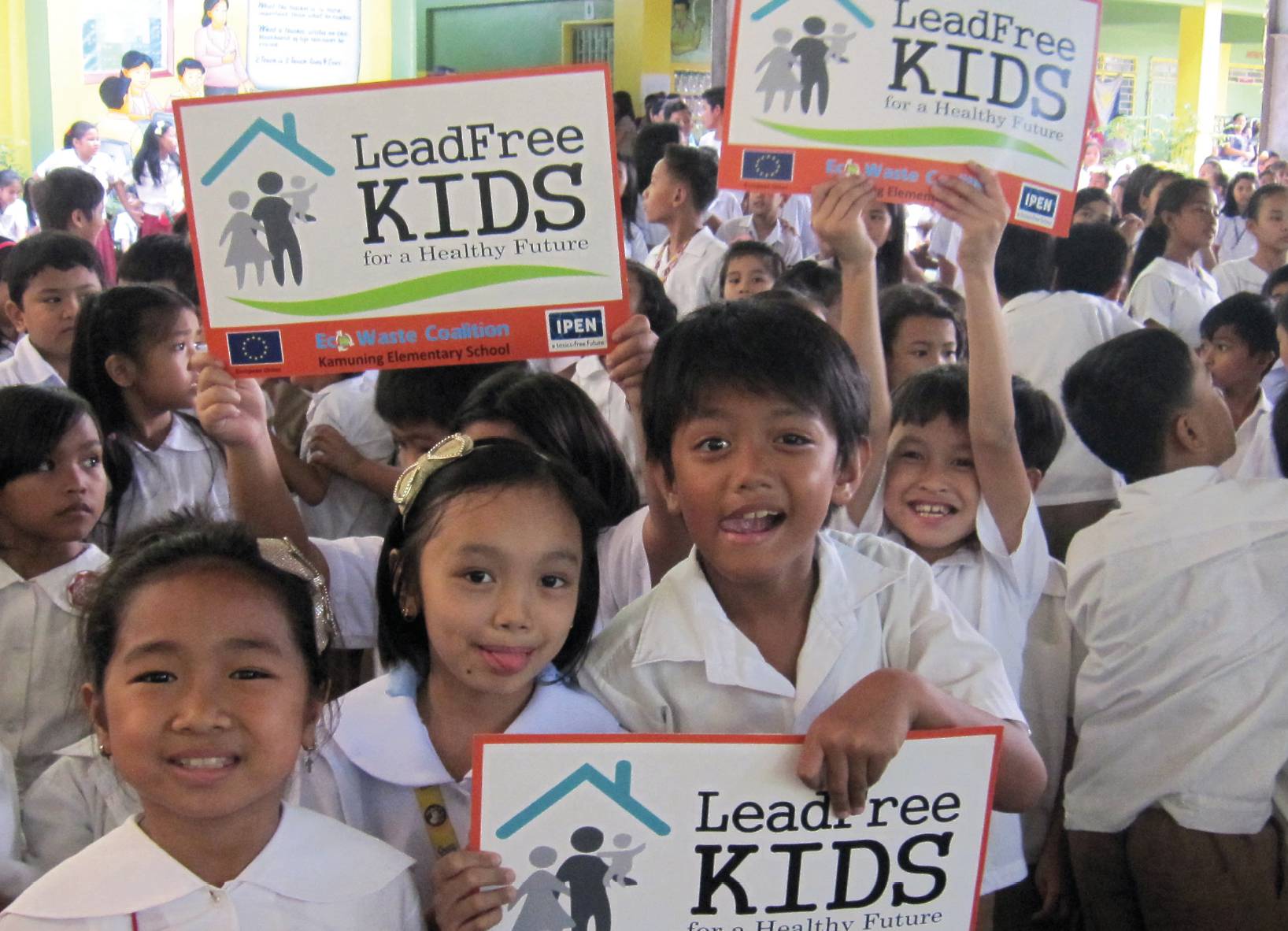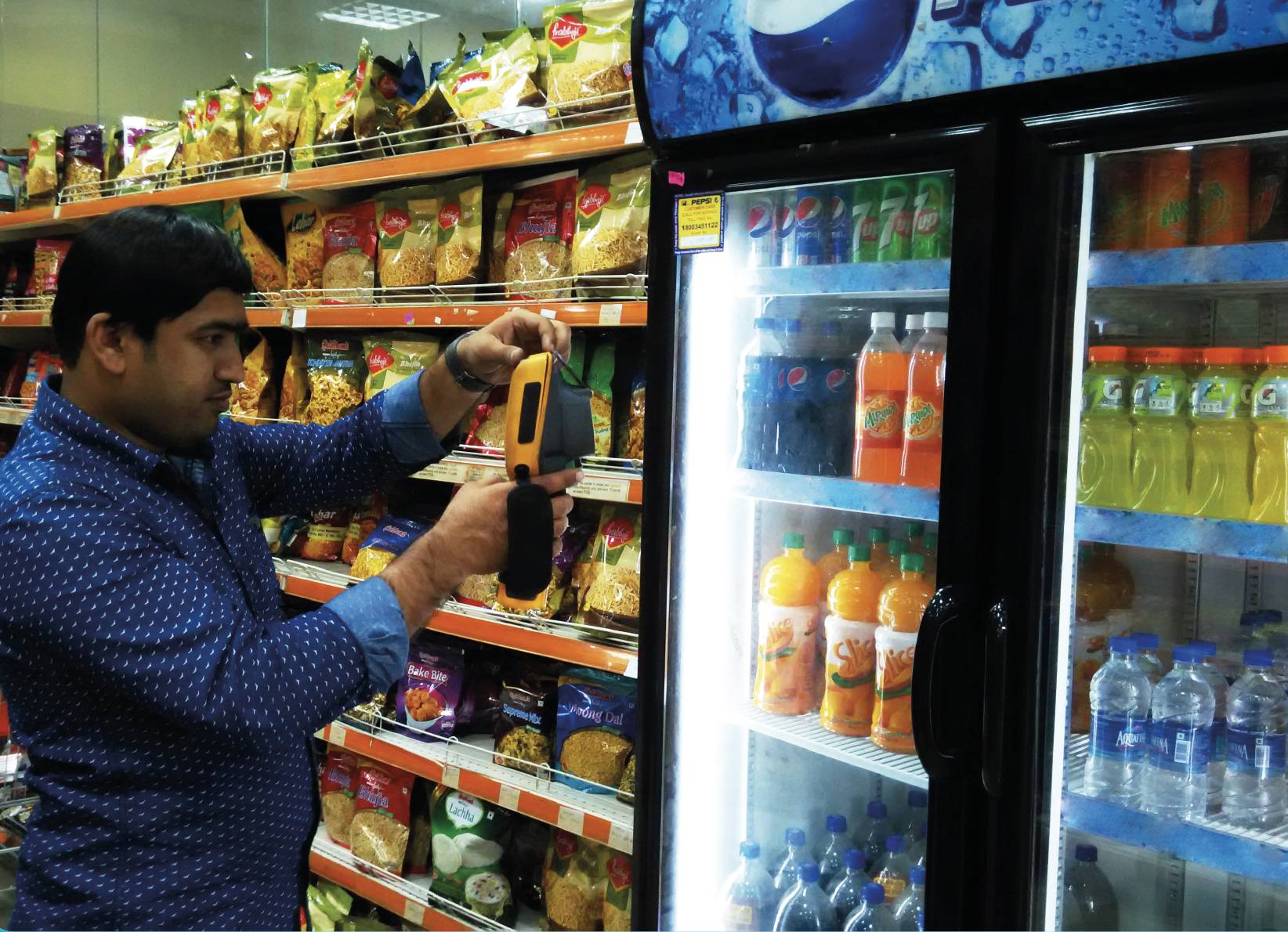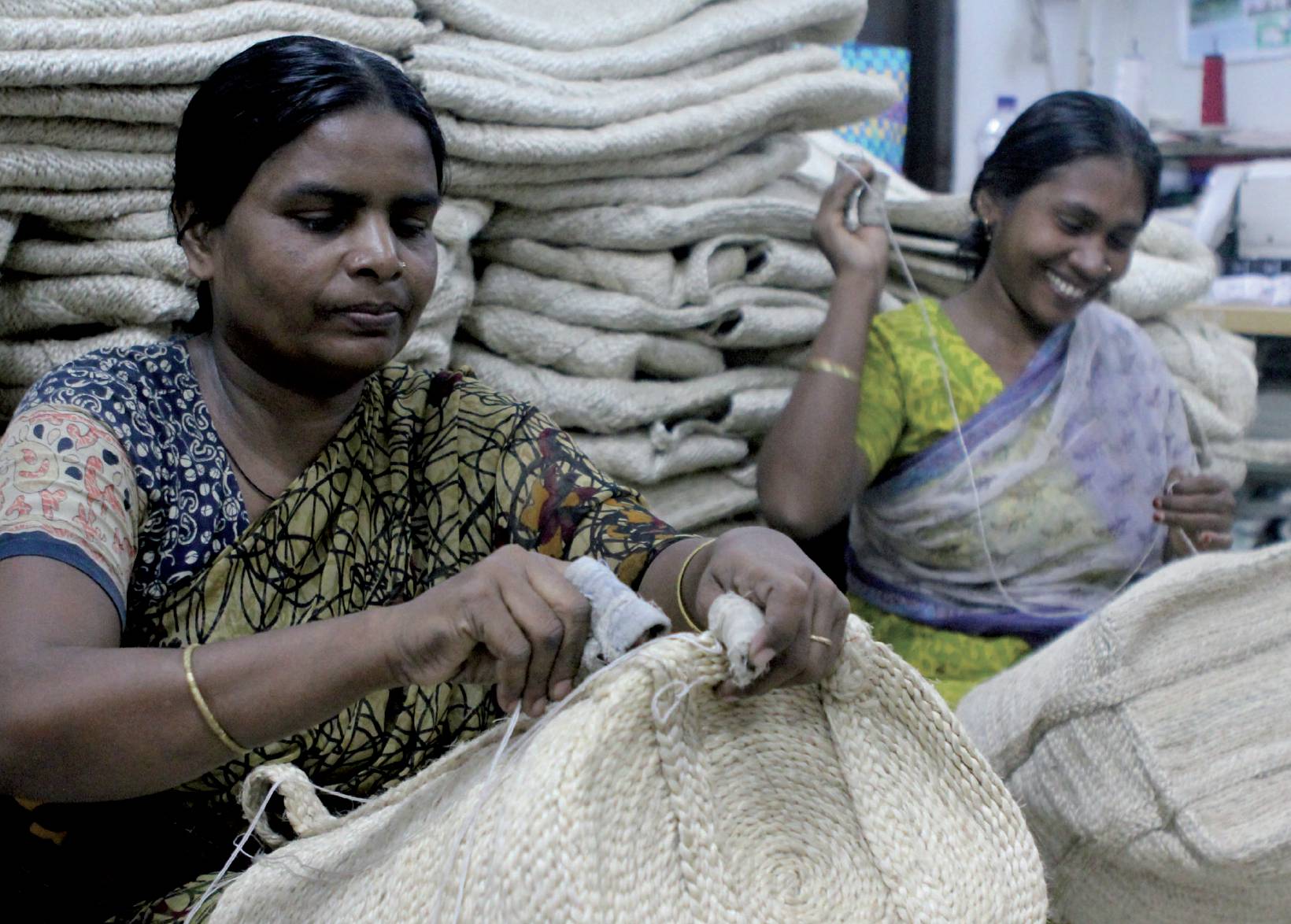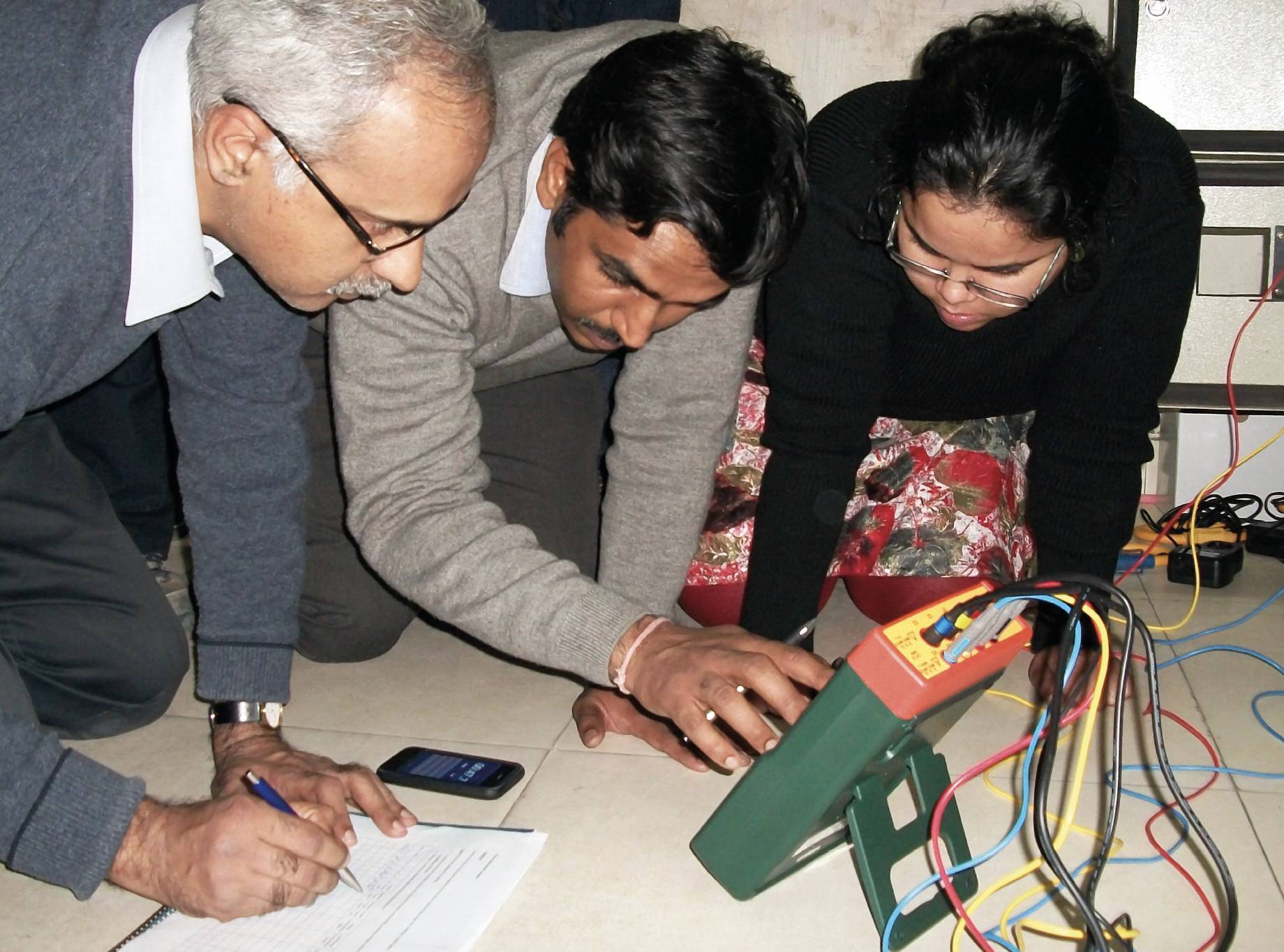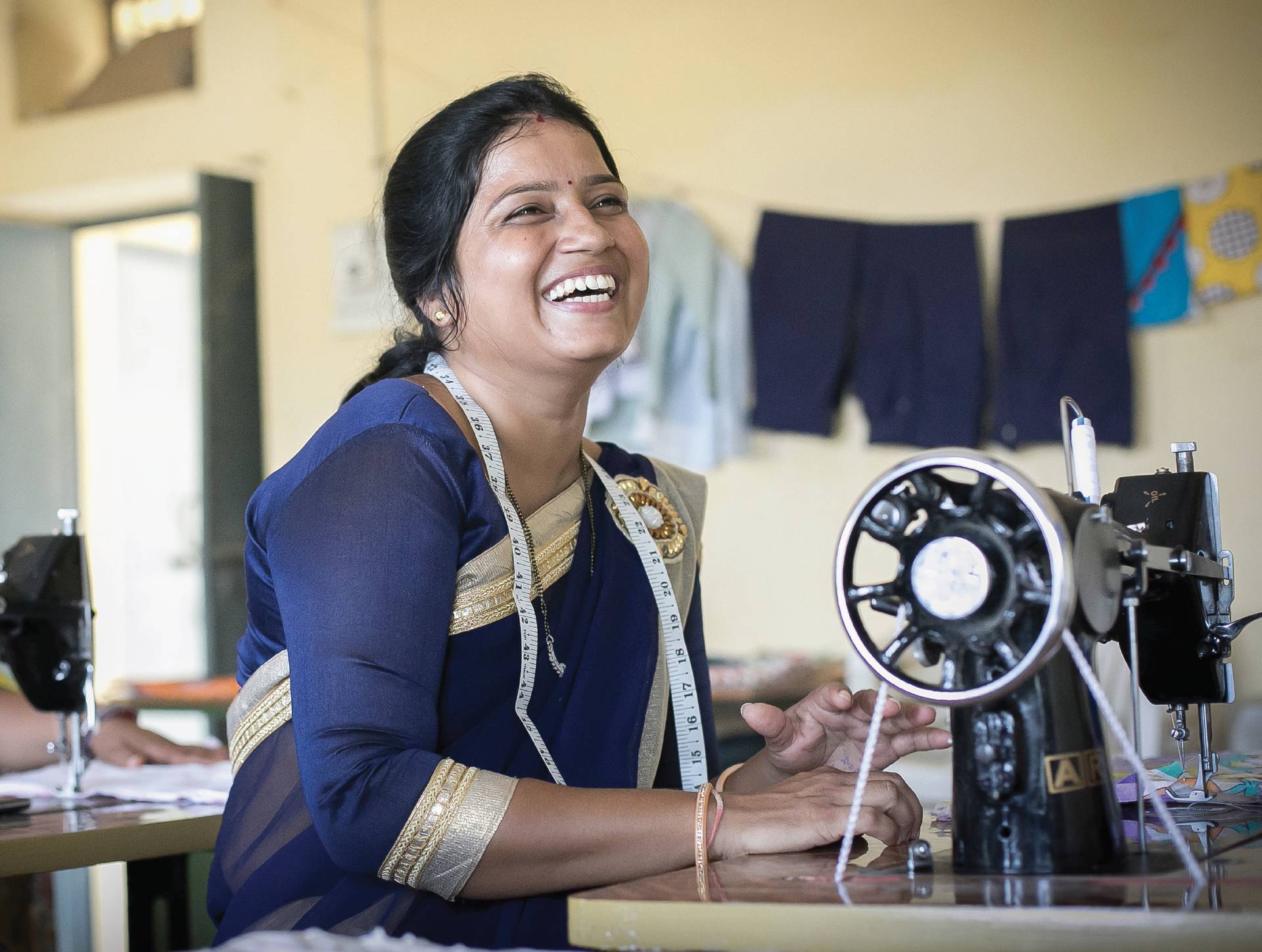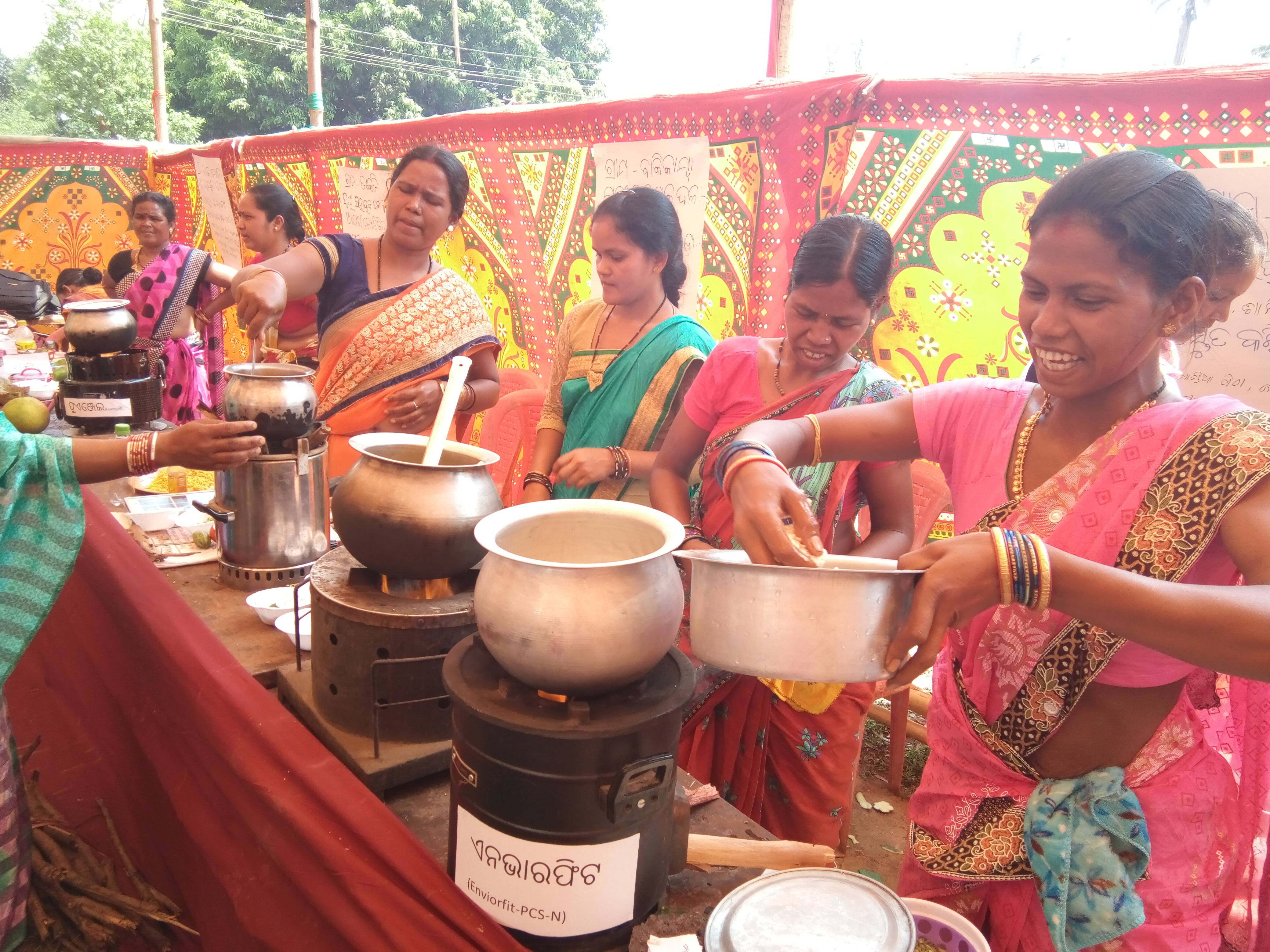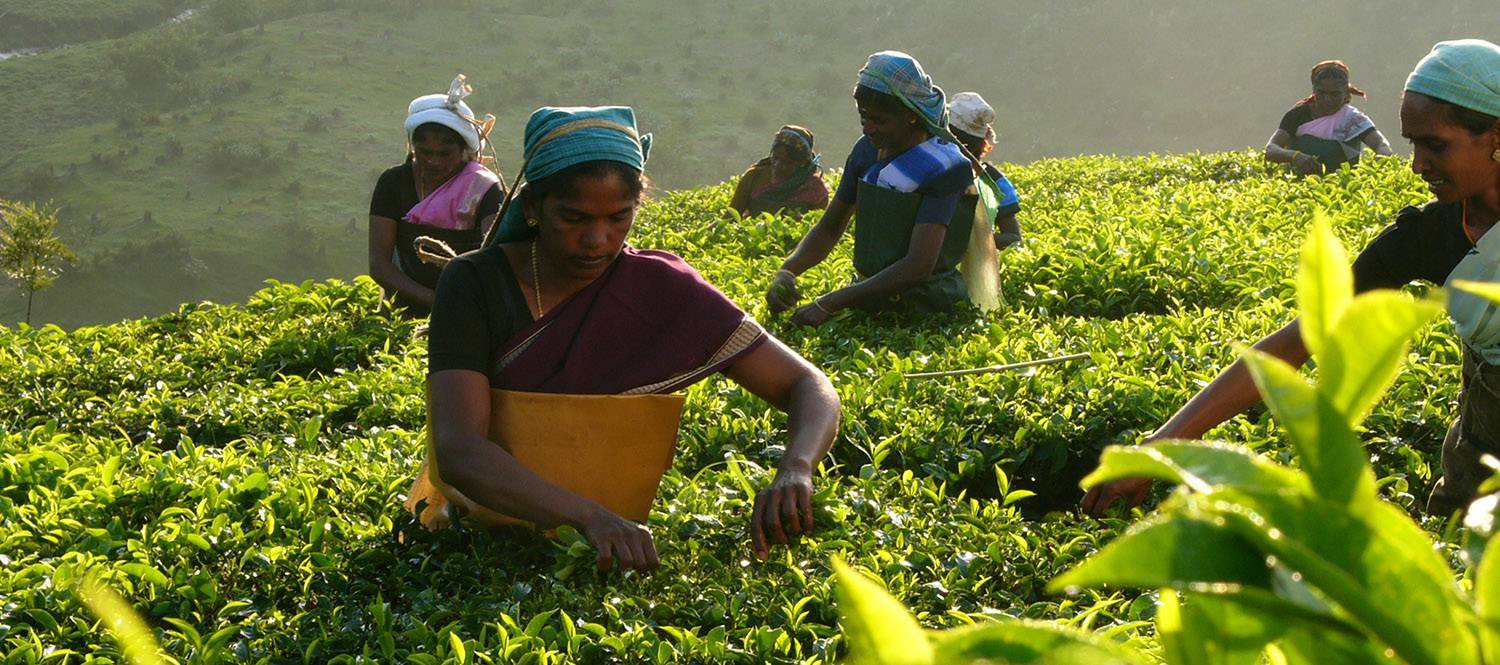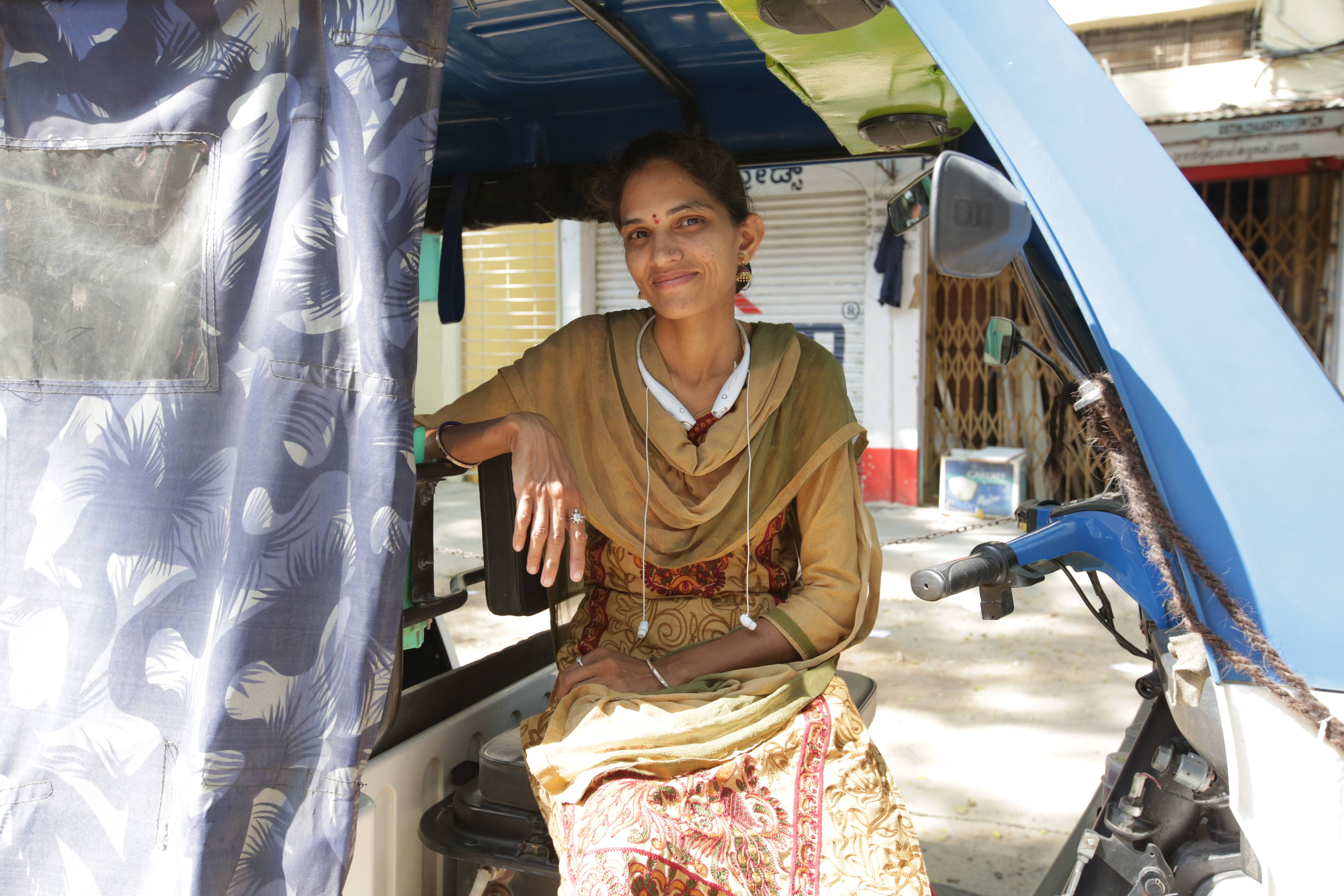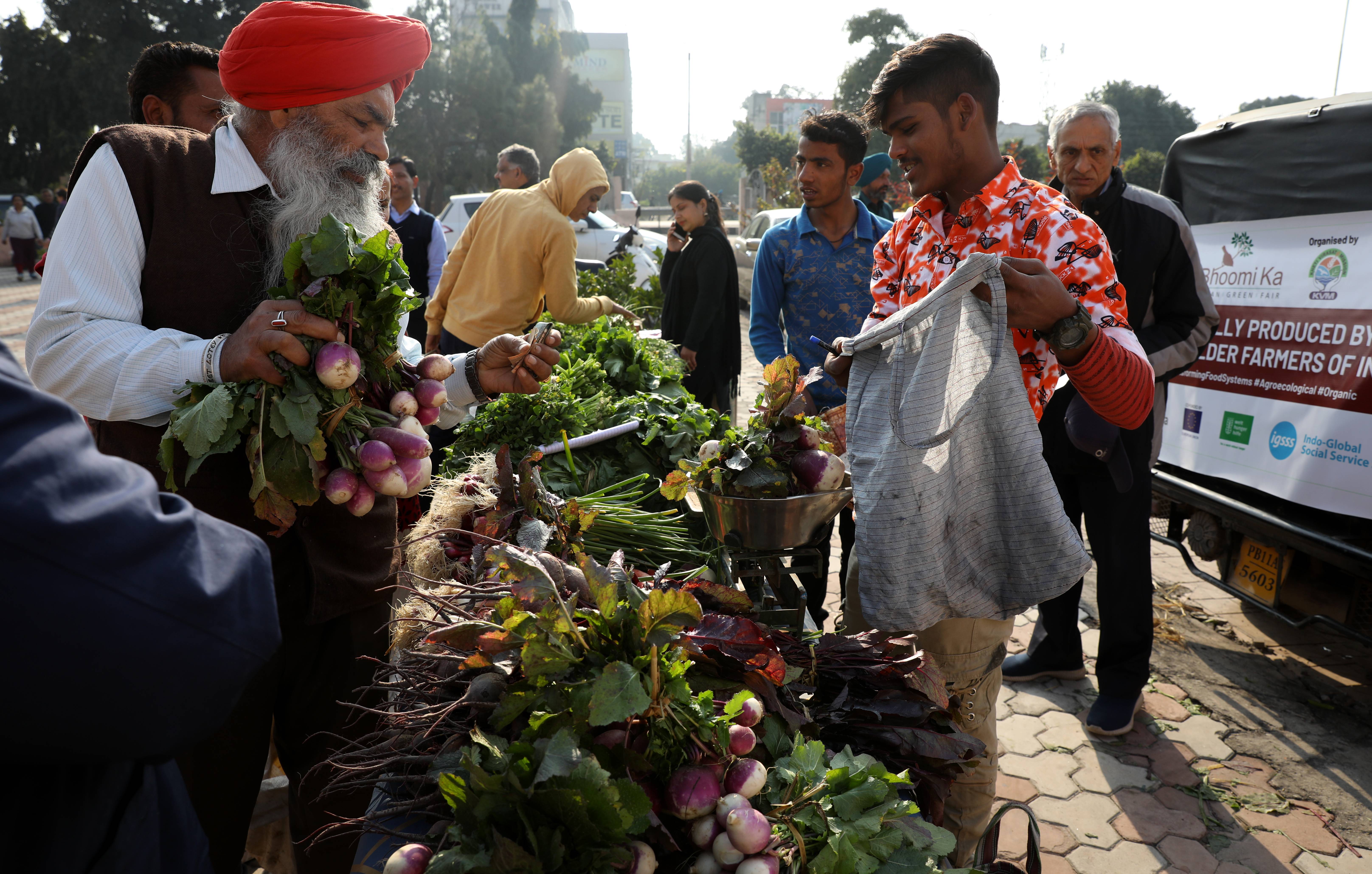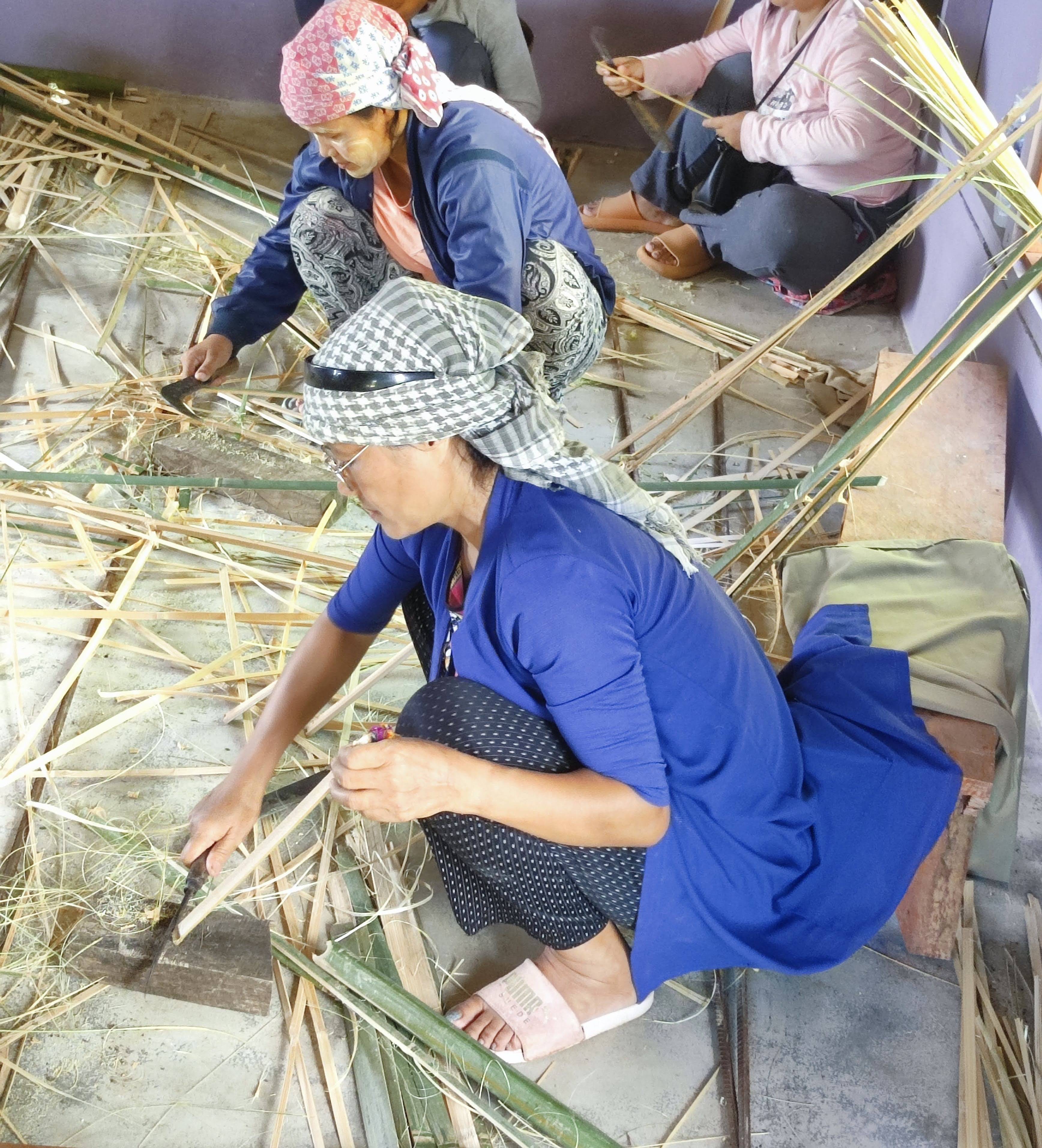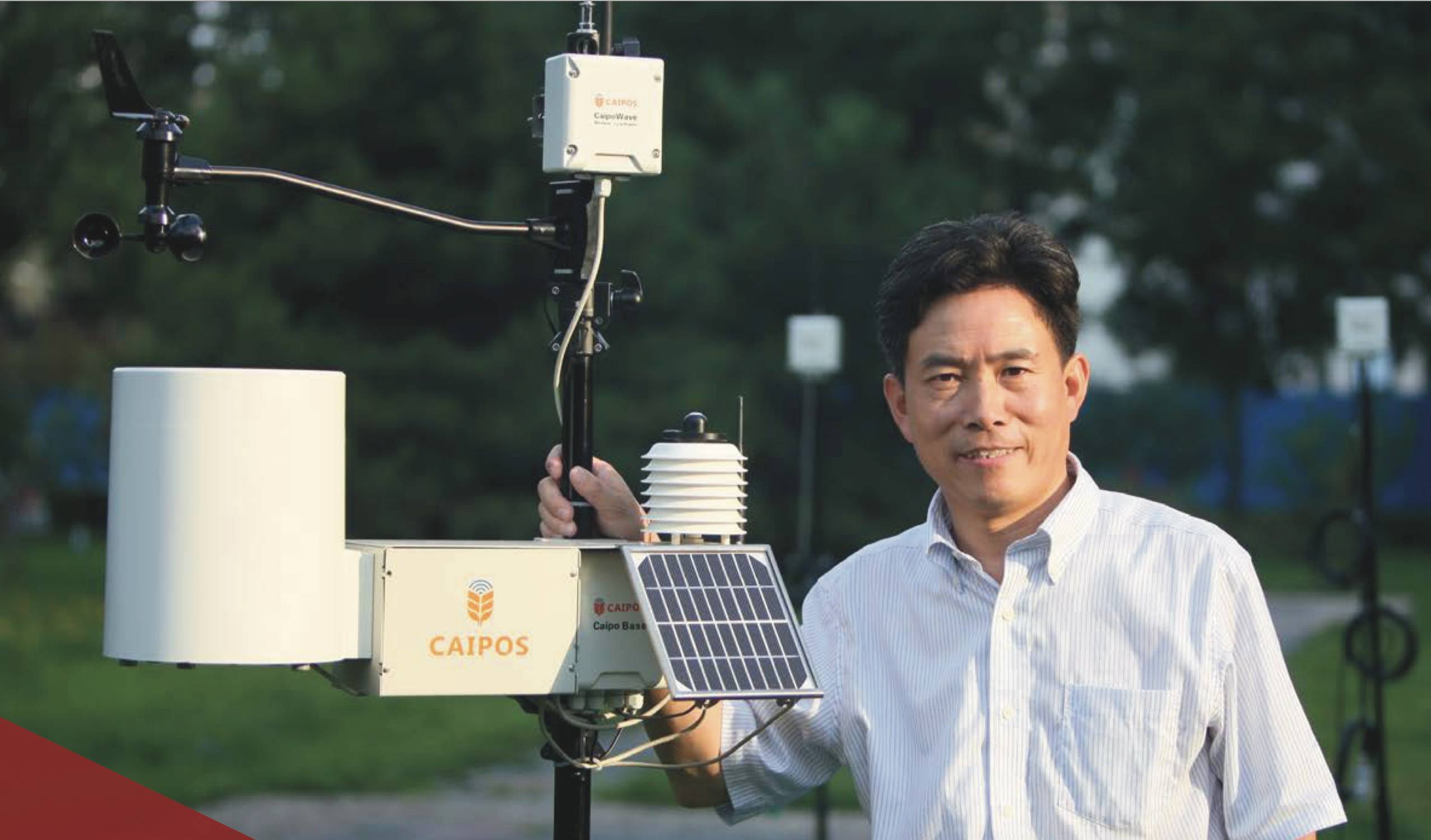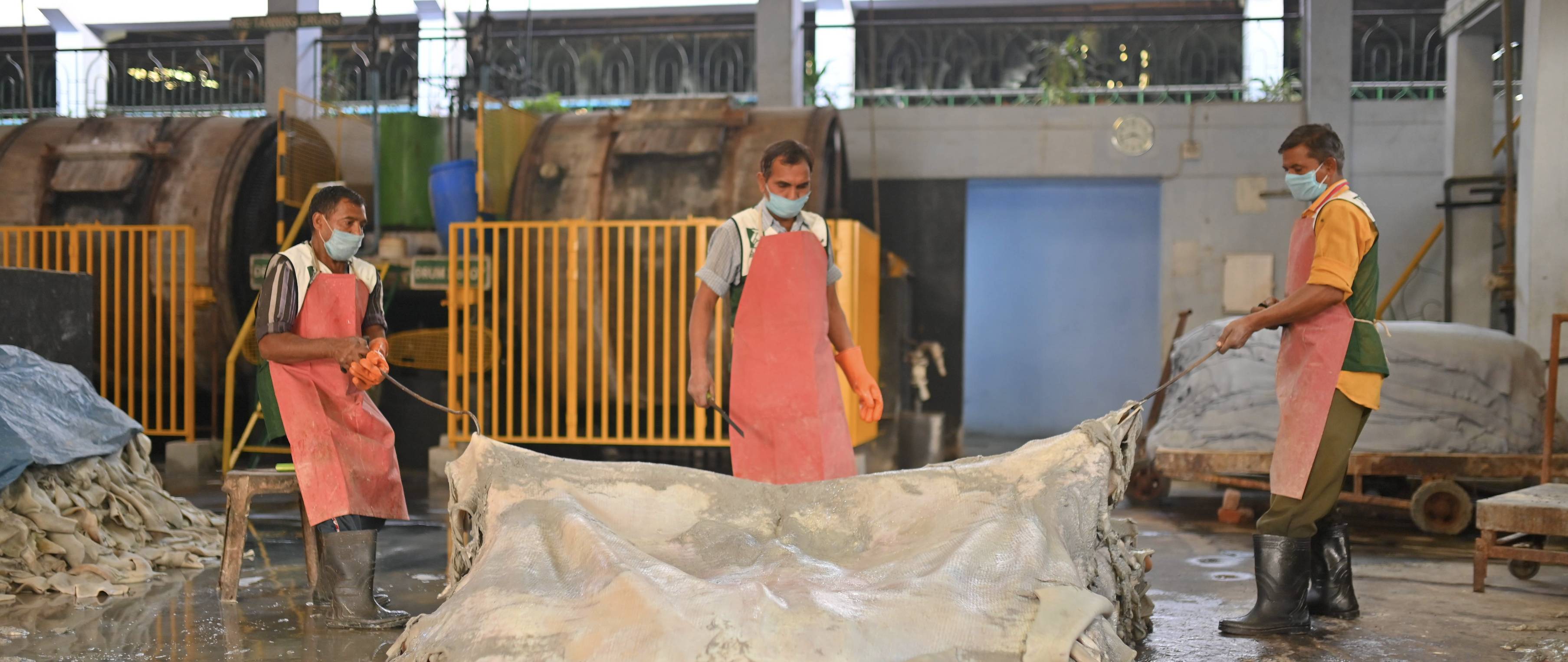
SCP Context
India advances Sustainable Consumption and Production (SCP) through strategic frameworks and regulatory instruments that promote circularity and resource efficiency. he draft National Resource Efficiency Policy (2019–2022)[1], developed to guide resource-efficient practices, provide policy direction for sustainable use of materials. Although the Policy has not been officially notified, Extended Producer Responsibility (EPR) in sector-specific measures, including the Battery Waste Management Rules (2022)[2], E-Waste Management Rules (2022)[3], Plastic Waste Management Rules (2022)[4], and the Construction and Demolition Waste Management Rules (2025)[5], ensure lifecycle responsibility and promote waste reduction, reuse, recovery, and recycling. Foundational legislation such as the Solid Waste Management Rules (2016)[6], Hazardous and Other Wastes (Management and Transboundary Movement) Rules (2016)[7], and Biomedical Waste Rules (2016)[8] underpin waste governance and recovery systems, while the Eco-Mark Rules (2024)[9] foster environmentally responsible production and consumer choice. Together, these measures reflect India’s integrated approach to SCP, advancing a circular, resource-efficient, and sustainable economy.
Connection to the Global Agenda
India contributes to the 2030 Agenda and the Paris Agreement through its national development frameworks and long-term vision of Viksit Bharat@2047[10], which aims to make India a developed nation by its centenary year of independence, with inclusive economic growth that benefits all citizens. India has presented Voluntary National Reviews (VNRs) at the UN High-Level Political Forum in 2017[11], 2020[12], and 2025[13], reporting on progress across the Sustainable Development Goals, including Sustainable Consumption and Production. Key environmental conventions ratified by India, such as Basel, Stockholm, Rotterdam, and Minamata, inform national strategies for chemical and hazardous waste management. At the national level, the NITI Aayog coordinates implementation of Agenda 2030, integrating sustainability targets into sectoral policies and development plans to advance India’s circular economy and resource efficiency goals.
A key solution to Climate Change
As one of the world’s fastest-growing economies, India has positioned climate action at the core of its sustainable development pathway. Under its updated Nationally Determined Contribution (NDC)[14], India has pledged to reduce the emissions intensity of GDP by 45% from 2005 levels by 2030, achieve 50% of cumulative electric power capacity from non-fossil fuel sources by 2030, and reach net zero emissions by 2070. These commitments focus on decarbonizing key sectors, including energy, transport, industry, and forestry. India’s National Action Plan on Climate Change (NAPCC)[15] serves as the overarching framework, comprising eight national missions and complementary state action plans that advance renewable energy, energy efficiency, sustainable agriculture, and water conservation. Together, the NDC and NAPCC form the backbone of India’s climate strategy, balancing growth with low-carbon transition and climate resilience.
Priority sectors for Sustainable Consumption and Production
- Promoting resource efficiency and a circular economy by supporting the development of action plans focused on key materials, including plastics, electrical and electronic goods, construction materials, textiles, and mixed municipal waste (both wet and dry fractions).Error! Bookmark not defined.
- Advancing sustainable public procurement and eco-labelling to support the Eco-Mark Rules, driving demand for green products and services.
- Supporting sustainable industrial transitions by promoting clean technologies, energy efficiency, and low-carbon pathways in energy-intensive sectors.[16]
- Enhancing sustainable agriculture and food systems through resource-efficient practices, soil health management, and climate-resilient farming models.[17]
- Encouraging consumer awareness and behavioral change to reduce material footprints and foster sustainable lifestyles in line with the Lifestyle for Environment (LiFE) mission.[18]
[1] Ministry of Environment, Forests, and Climate Change. (2019). Draft National Resource Efficiency Policy
[2] Ministry of Environment, Forests, and Climate Change. (2022). Battery Waste Management Rules
[3] Ministry of Environment, Forests, and Climate Change. (2022). E-Waste Management Rules
[4] Ministry of Environment, Forests, and Climate Change. (2022). Plastic Waste Management Rules
[5] Ministry of Environment, Forests, and Climate Change. (2025). Construction and Demolition Waste Management Rules
[6] Ministry of Environment, Forests, and Climate Change. (2016). Solid Waste Management Rules
[7] Ministry of Environment, Forests, and Climate Change. (2016). Hazardous and Other Wastes (Management and Transboundary Movement) Rules
[8] Ministry of Environment, Forests, and Climate Change. (2016). Biomedical Waste Rules
[9] Ministry of Environment, Forests, and Climate Change. (2024). Eco-Mark Rules
[10] Viksit Bharat 2047 Website
[11] Government of India. (2017). Voluntary National Review Report 2017
[12] Government of India. (2020). Voluntary National Review Report 2020
[13] Government of India. (2025). Voluntary National Review Report 2025
[14] Government of India. (2022). India’s Updated First Nationally Determined Contribution Under Paris Agreement
[15] Government of India. (2008). National Action Plan on Climate Change
[16] World Economic Forum. (2025). Accelerating India’s Energy Transition through Industrial Clusters
[17] Climate Policy Initiative. (2025). Sustainable Finance Flows to India’s Agriculture Sector
[18] Ministry of Environment, Forests, and Climate Change. (2022). Lifestyle for Environment (LiFE)
A look back at milestones that shaped our work
2018
SCP Facility
- Preliminary assessment of SCP related policies, activities, needs/gaps, and opportunities.
Regional Policy Advocacy Component (RPAC)
Facilitated the participation of Indian key-stakeholders in the following regional/ sub-regional activities:
- Asia Pacific Low Carbon Lifestyles Challenge (19-22 Mar 2018), hosted by Thailand, regional level
- Transforming Asia Pacific: Innovative Solutions, Circular Economy and Low Carbon Lifestyles (17-19 Sep 2018), hosted by Thailand, regional level
- Asian Circular Economy Leadership Academy (3-8 Dec 2018), hosted by Thailand, regional level
2019
SCP Facility
- The National Focal Point officially addressed a specific request for support to prepare an action plan to mainstream Green Public Procurement (GPP) in close cooperation with the Ministry of Railways.
- A concept note with specific actions and timeline was signed off on by national government entities.
- Once the concept note is approved, the term of reference for experts will be developed.
Regional Policy Advocacy Component (RPAC)
- Initiated a national activity to support India on SDG12 monitoring and reporting. The activity included different components: i) identification of relevant indicators for India’s reporting on SDG 12 at the national and international levels; ii) facilitation of a policy dialogue around SDG 12 monitoring and reporting; iii) support the establishment of a follow-up mechanism for SDG 12 reporting; iv) capacity building to report on specific indicators.
Facilitated the participation of Indian key-stakeholders in the following regional/ sub-regional activities:
- “Sustainability Reporting – Thinking Circular Economy by Businesses” - This event was organised back-to-back with 2019 Asia Pacific Forum on Sustainable Development (27 Mar 2019), hosted by Thailand, regional level
- Businesses Accelerating Inclusive Green Economies – "Leaving No One Behind” - Side event on the Responsible Business and Human Rights Forum co-organised by the Royal Thai Government, OECD, United Nations Development Programme (UNDP), ESCAP, International Labour Organization (ILO) and with the participation of the UN Working Group on Business and Human Rights (11 Jun 2019), hosted by Thailand, regional level
- WEBINAR: SDG 12.1 Reporting for SWITCH-Asia Countries – Connecting the dots between actions and reporting (5 Nov 2019), regional level
- Policy Dialogue on SDG12 Reporting (21 Nov 2019), hosted by Vietnam, regional level
- 2019 SWITCH-Asia Leadership Academy on Circular Economy (2-6 Dec 2019), hosted by China, regional level
- "Supporting decision making on SCP through training on Sustainable Procurement” - This event was organised back-to-back with International Conference on Sustainable Energy and Green Technology 2019 (11 Dec 2019, hosted by Thailand, regional level
2020
SCP Facility
- Assignment on Sustainable Public Procurement (SPP) at Indian Railways launched: two SCP Facility experts working on advising the Ministry of Railways on translating policies into a plan of action for mainstreaming Sustainable Public Procurement (SPP), sustainable building and construction, water and waste management.
- Outputs of the assignment: Scoping report developed; stakeholder consultation workshop held in August 2020; awareness programme and training for procurement officers delivered in October 2020.
- Research delivered regarding financing options for SCP practices in India; business case development for INDTUK project.
Regional Policy Advocacy Component (RPAC)
- The RPAC has provided technical support to India for developing a monitoring and reporting framework for SDG 12 to enable robust reporting of India’s progress in achieving Goal 12
- The RPAC also facilitated India’s reporting on SDG 12.1 for the global call for reporting by the 10 YFP Secretariat
Facilitated the participation of Indian key-stakeholders in the following regional/ sub-regional activities:
- SWITCH2Green Meeting (Apr 2020)- RPAC initiated the discussion and shared the first report in 2020.
- Moving the Needle on Climate Change (10 Jun 2020)– The event was co-organised by the UNESCAP as a part of the 2020 Virtual United Nations Responsible Business and Human Right Forum (RBHRF), regional level
- World Environment Day 2020 (5-7 Jun 2020)– A media kit was provided to call for action to promote SCP as a part of the 2020 World Environment Day (WED) celebration, regional level
- Intervention in regional forum: Webinar on Sustainable Lifestyles for Plastics & Packaging Waste Management During a Pandemic COVID-19 (6 Aug 2020), regional level
- SCP in Tourism: Opportunities and Challenges with COVID-19 (8 Oct 2020), regional level
- Innovation and Connectivity through Farm to Fork (13 Nov 2020), regional level
- Sustainable Lifestyles for SCP (19 Nov 2020), hosted by Thailand, regional level
- Sub-regional Workshop on SPP for SACEP Countries (25 November 2020), the event was organised in partnership with South Asia Co-operative Environment Programme (SACEP) for South Asia region, Sub-regional level
- Support to Steering Committee of SWITCH-Asia (3 Dec 2020)– RPAC provided support for the annual Steering Committee Meeting and proposed 2021 workplan, regional level
- Regional Policy Dialogue on Circular Cities (4 Dec 2020), regional level
- Regional Dialogue Driving Mechanisms for Eco-Design in Asia (9 Dec 2020), regional level
- Leadership Academy on Circular Economy 2020 (14-18 Dec 2020), regional level
- Webinar: Innovations & Startups (16 Dec 2020), regional level
2021
SCP Facility
- Experts have delivered training through vendor stakeholder workshops on services and products; Training of Trainers at Indian Railways’ capacity building institute NAIR and handover of materials for integration into training programmes
- Final workshop held in June 2021 to present and gain feedback and support for policy action plan: Sustainable Public Procurement for Indian Railways › Resource Library | SWITCH-Asia
- Publication of Scoping Study, Policy Analysis, Action Plan, Implementation Guide Sustainable Public Procurement Action Plan for Indian Railways › Resource Library | SWITCH-Asia
- Publication on SCP Financing options in India finalised Access to Finance for SCP Practices by Small and Medium-sized Enterprises in India › Resource Library | SWITCH-Asia
Regional Policy Advocacy Component (RPAC)
- National Consultative Roundtable Dialogue (02 March 2021) – to present the draft report proposing a framework for SDG 12 monitoring and reporting in India to strengthen national reporting on Goal 12.
- World Environment Day 2021 (03 June 2021) – webinar on “Empowering Youth for SCP & Ecosystem Restoration” to highlight the vital role of applying SCP principles for the resilient ecosystems with a focus on Sustainable Food Systems.
Facilitated the participation of Indian key-stakeholders in the following regional/ sub-regional activities:
- Contextualising the Circular Economy for Action (4 Feb 2021), regional level
- Technology for Circular Economy: A Prologue to the 2021 SWITCH-Asia Leadership Academy (25 March 2021), regional level
- Circular Economy and Sustainable Lifestyles Course (18 May 2021) – launch of offline course on SCP for policy makers and young professionals, regional level
- South Asia Policy Dialogue on the Role of Businesses in Accelerating SCP (23 March 2021) – to disseminate the findings of the RPAC Study on SCP – Stocktaking of Perspectives in South Asian Business, sub regional level
- GO4SDGs High level launch in Asia and the Pacific (21 April 2021), regional level
- World Environment Day 2021 (4 June 2021), regional level
2022
SCP Facility
- Grant projects from India presenting key contributions at Agri-Foods Cluster Meeting Rethinking Agri-food Systems through Circular Economy and Resource Efficiency: Barriers, Innovations and Learnings › Resource Library | SWITCH-Asia


